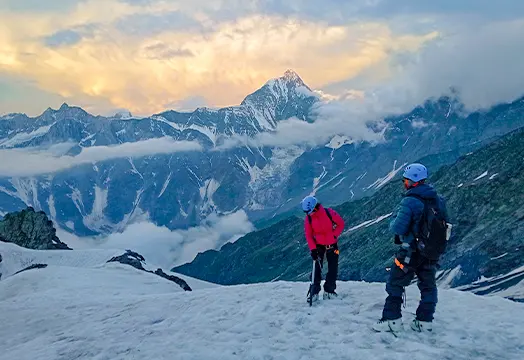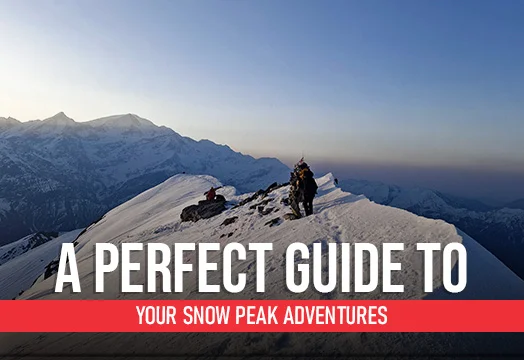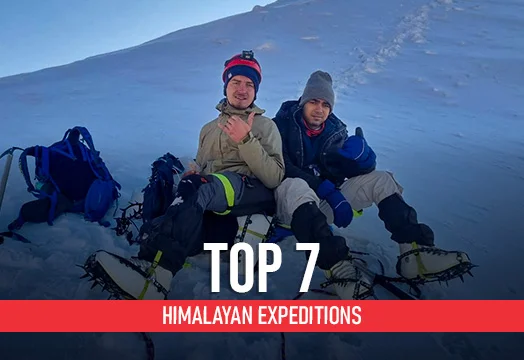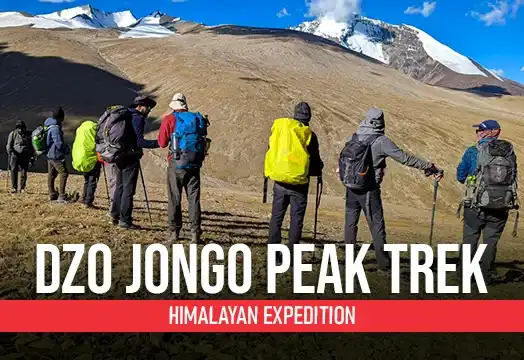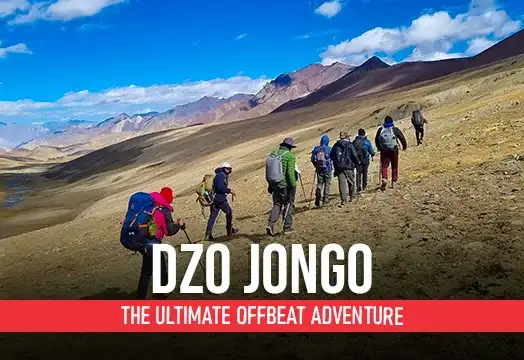Dzo Jongo East Peak With Markha Valley Trek

Region
Ladakh | India

Duration
10 Days

Max Altitude
20500 Ft.

Trekking Km
81 KM

Grade
Challenging
Get in Touch with Our Trek Expert
+91 8191004846 info@trekthehimalayas.comMonday - Saturday: 10 AM to 09.30 PM (GMT +5:30)
Sunday: 10 AM to 05.30 PM (GMT +5:30)
38000 /Person
- June-2026
- July-2026
- August-2026
- September-2026
- Services Leh to Leh | Included Transport
- Join as an Ambassador & Trek Free Explore Details
- 1:2 Guide/Trekker Ratio on Summit Day
Add-ons
Offload 4800
- Backpack offload is optional.
- Choose add-ons during booking. If missed, log in and add them later.
- Book off-load at least 10 days before the trek.
- For offline bookings at the base camp, a convenience fee of Rs. 6000 applies.
- Cancellations made before the trip date will receive a full refund.
- + 5% GST will be applicable
Get in Touch with Our Trek Expert
+91 8191004846info@trekthehimalayas.com
Monday - Saturday: 10 AM to 06 PM (GMT +5:30)
Overview
Trek Name: Dzo Jongo East Peak With Markha Valley Trek
Days: 10
Adventure Type: Trekking
Base Camp: Leh
Season:Summer | Monsoon |
Month:July | August | September |
Country: India
Altitude: 20500 Ft.
Grade: Challenging
Rail Head: -
Stay: Camping (Twin sharing) & Hotel/Guesthouse (Separate male & Female)
Food: Meals while on trek (Veg + Egg)
Location: Ladakh
Distance: 81 Km.
Trail Type: Summit, Cross over trail | Scale a peak, Start in one valley, traverse the pass, and ends in another valley.
AirPort: Leh (Kushok Bakula Rimpochee)
Highlights:
- Services Leh to Leh | Included Transport
- Join as an Ambassador & Trek Free Explore Details
- 1:2 Guide/Trekker Ratio on Summit Day
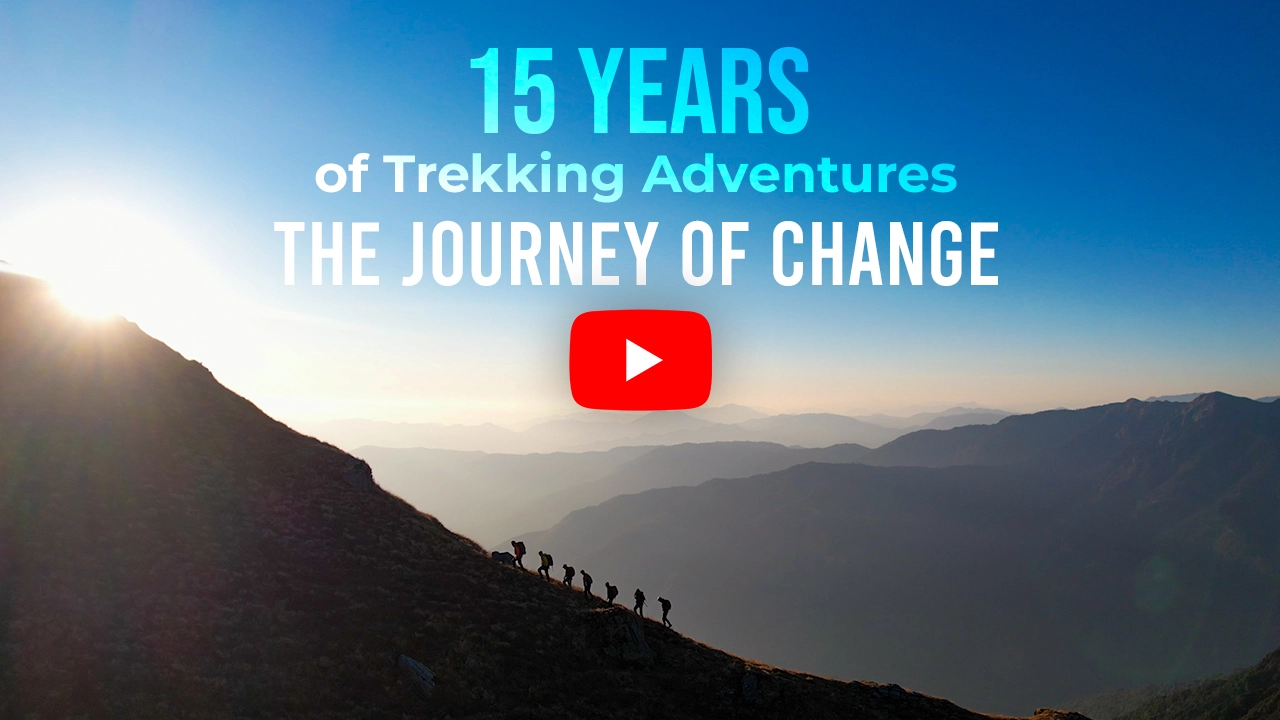
Why is Dzo Jongo East Peak a Must- Do Trek?
- Standing at the summit of Dzo Jongo East gives you stunning 360° views of the Zanskar, Karakoram, and Stok ranges.
- The summit push introduces you to basic mountaineering skills using crampons, ropes, and harnesses.
- The trek is ideal for those attempting their first 6000+ meter peak without much technical climbing.
- A thrilling midnight summit attempt adds to the adventure and tests your endurance.
- You cross Kongmaru, a high mountain pass offering sweeping views of Kang Yatse and surrounding peaks.
- The trail passes through the beautiful Markha Valley with its dramatic gorges, rivers, and rock formations.
- You walk through traditional Ladakhi villages like Skiu and Sara, experiencing local culture, monasteries, and hospitality.
- The trek takes you through Hemis National Park, which is rich in biodiversity so you might spot animals like blue sheep, marmots, foxes, and rare birds.
- Camping under the clear night sky gives you a magical view of the Milky Way and countless stars.
- The journey starts with a scenic drive from Leh, passing landmarks like Magnetic Hill and Gurudwara Pathar Sahib.
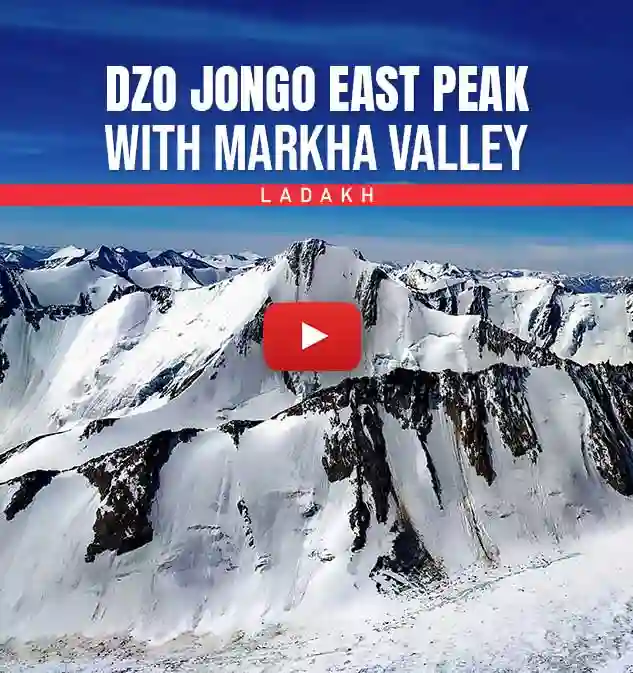
Who Can Participate
- Age Requirement:
- Minimum 16 years
- Fitness Criteria:
- The Trekker should have sufficient stamina to cover 5 km of distance in 30 minutes without stress or 10 km of distance by jogging in 70 minutes without stress.
- If the trekker prefers cycling he/ she should be able to cycle 20 km of distance in 55 minutes.
- Preparation Chart view download
- First-time trekkers are welcome, provided they meet the mentioned fitness requirements.
- If the trekker wants to carry a backpack then he/she should be able to carry a 10-12 kg backpack. If opt Off-load option then the Trekker should be able to carry 3-5 kg backpack.
- If a trekker's BMI is more or less than the normal range (18-26), please consult our Trek Coordinator before booking.
Special Expedition Offer - Retry for Free if Incomplete
At Trek The Himalayas, we understand that unforeseen circumstances can sometimes interrupt your expedition. To support our trekkers, we’re introducing a special repeat offer.
If you're unable to complete the expedition and wish to relive the adventure again, we’ve got you covered
Terms and Conditions:
- The offer is valid for 3 years from the trek departure date.
- This offer is applicable only for treks booked from May 30th, 2025, onwards.
- Participants are not required to pay the expedition cost again, but they will need to cover accommodation in Leh, transportation, and expedition permit costs.
- This offer is non-transferable and is only applicable to TTH's limited fixed departures.
- The offer does not apply if the participant has received a refund, a voucher, or a transfer to another trek that has been used previously.
- The offer will be activated once the participant reaches the expedition base camp.
- This is not an offer linked to any purchased package; rather, it is an initiative extended by TTH out of goodwill, without any cost to the trekkers.
- Trek The Himalayas reserves the right to cancel this offer at any time, in case of:
- Disobeying the safety regulations, trekking rules, or the code of conduct
- Black listing due to bad behavior, payment issues, or providing inaccurate information
- Anything that would damage the brand or reputation of TTH
- In order to rebook, just fill in our booking form online or call our team.
Dzo Jongo East Peak With Markha Valley Trek Itinerary
Arrival Leh
- Altitude: 3500 m/ 11500 ft.
- Network: Available (only post-paid).
- ATM Point: Available in Leh.
- Stay: In the hotel.
- Briefing at 5 pm.
- Trek gear is available in Leh for rent or purchase.
- Bring a copy of ID proof and 2 photographs, for foreigners copy of your passport and visa, is mandatory.
- Visiting high-altitude places or passes are not advisable.
- Alcohol consumption and smoking are prohibited.
This is the beginning of your exciting expedition. On Day 1 you will arrive at the scenic destination of Leh. Leh is set in between the barren mountains of Ladakh, absorbing its beauty. Today you will get acquainted with your team and receive a briefing from our team about the basics of mountain treks and the conditions that you can expect at Dzo Jongo. Leh is situated at an altitude of 3500 meters and the trek goes further upwards here as such it is necessary to give your body adequate time to acclimatize.
It is recommended to drink sufficient water, avoid exertion activities, and let your body acclimatize. Rent gear is available for purchase and rent in Leh and you can purchase or rent anything if required. Today’s schedule is flexible and we will mostly observe how everyone is adjusting to the altitude. Traveling to high-altitude places is not recommended and you should rest as much as possible in your hotel.
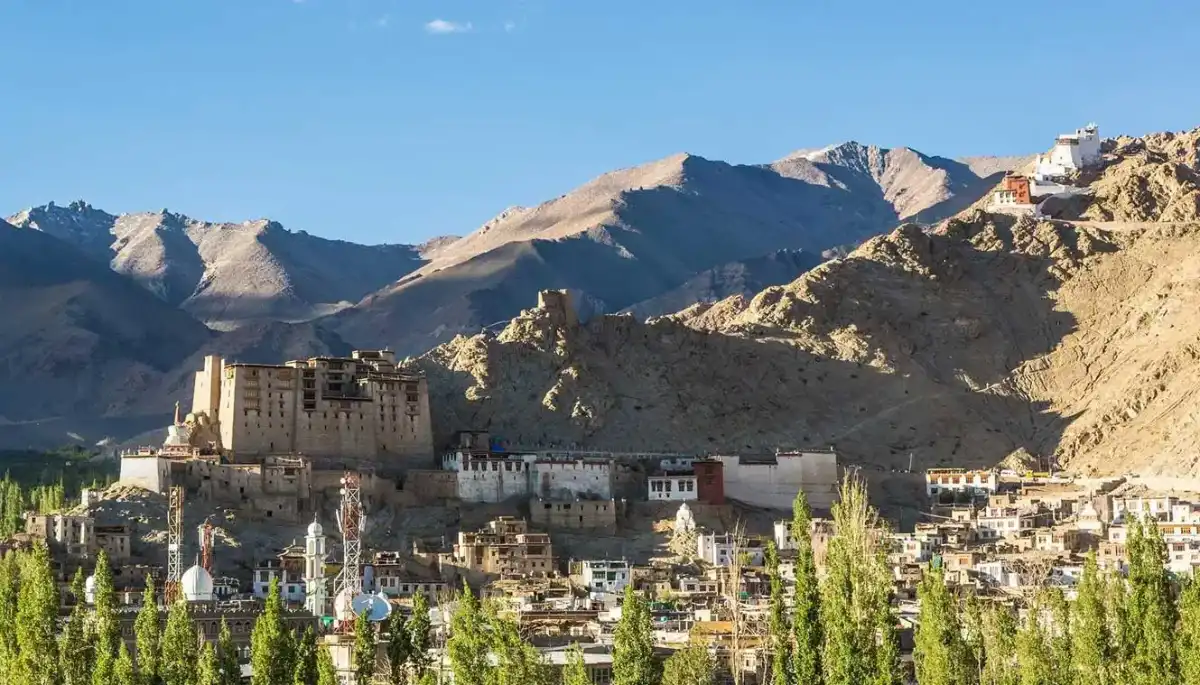
Leh (Acclimatization day)
- Sightseeing and acclimatization.
- Prominent monasteries: Shey, Thiksey, Sangam, and Hemis.
- Stay: In the hotel.
- Visiting high-altitude places or passes are not advisable.
- Avoid river rafting, you can plan it after the trek.
Today we have an entire sightseeing day ahead of us and we will visit various monasteries and acclimatize at higher altitudes. In Leh Old Town, you can visit the Leh-Palace, which is a legacy left behind by the ancient kingdoms of Ladakh and was built by Drugpa Bumdey - the King. The palace is situated on a high mountain ridge and from here, you will get a bird’s eye view of the entire town.
You can visit the many ancient Buddhist monasteries in the town of Leh. These monasteries are a gateway to serenity away from the bustling city life. Thikse, Namgyal Tsemo, Sangam, and Hemis are some popular monasteries and the perfect place to find some peace and fortitude. Thiksey Monastery was built in the 14th century by monks sent by the Dalai Lama from Tibet. The Leh market is also a great place to shop for souvenirs, the entire market is adorned with many colorful shops. In the evening you can relax comfortably in the hotel.
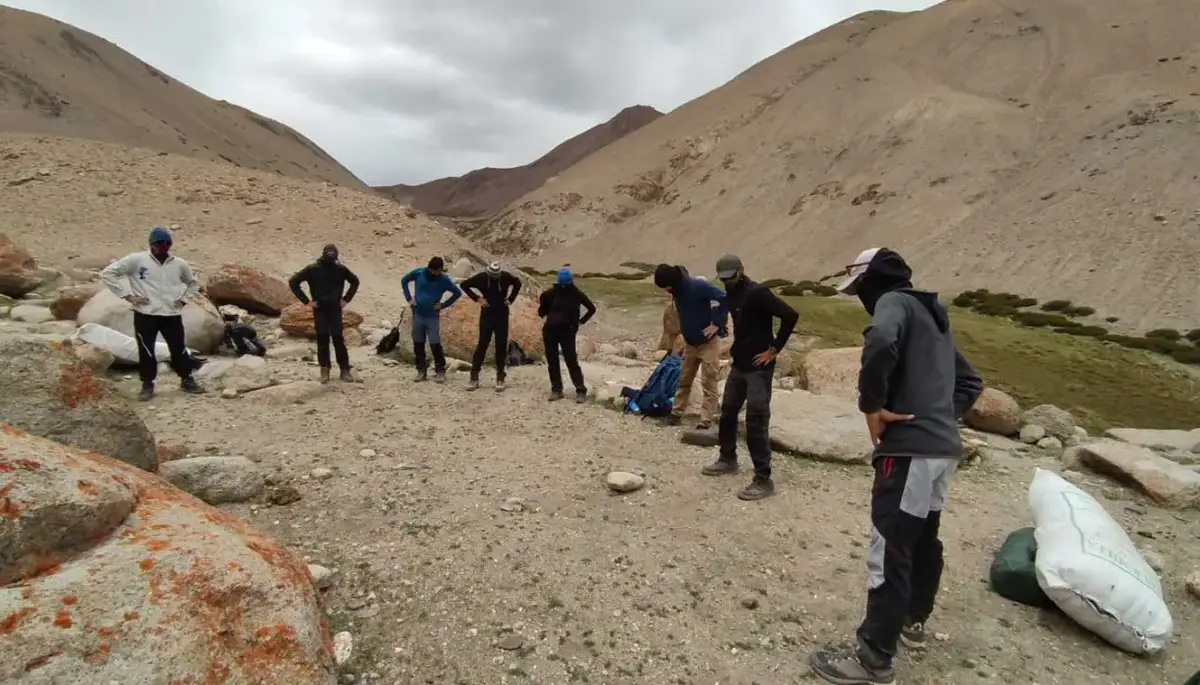
Drive Leh to Skiu then trek to Sara
- Altitude:
- Skiu- 3,400 m/ 11,150 ft.
- Sara- 3600 m/11800 ft.
- Drive Distance: 70 km | 2-3 hrs.
- Trek Distance: 11 km | 5-6 hrs.
- Accomodation: Tent
Today unfolds a new part of your trek, bringing you closer to the essence of your adventure. This long yet captivating day promises an array of great experiences as you trek through skillfully paved roads and landscapes. Along the way, you’ll pass military camps adorned with large rocks, adding to the rugged charm of the route.
Keep an eye out for iconic landmarks. Gurudwara Pathar Sahib on one side and Magnet Hill on the other side. You will get to see the Stok range during your journey until you reach Hemis National Park.
Your first highlight of the day is Sangam, where the Indus and Zanskar rivers meet in a mesmerizing confluence. Both rivers, with their distinct bottle-green hues, merge seamlessly in a display of natural elegance. From here you will turn towards Chilling, and the landscapes will change magically, the open terrains beside the road will slowly turn into stunning valleys. The valleys are beautiful with shades of purple, black and gray. Juniper and other trees will border the route as you cross the Zanskar river over green iron bridges and get closer to Skiu.
Skiu is a beautiful village divided into Upper and Lower sections. Lower Skiu features a cluster of few houses, while Upper Skiu is adorned with Mani stones, white stupas, an old monastery, and the ruins of a palace. The serene charm of Skiu is the perfect prelude to your Himalayan adventure.
You will begin trekking from Skiu, as you start, the trail is quite evident and well-paved. You might also spot birds and animals, as Markha valley harbors enormous wildlife. Magpie birds can be spotted easily. As you trek, the Markha river will accompany you and after some time walk you will spot a cafe. You can take a short break here and then again get back on the trails. Along the trek, you will cross the Markha river a few times, passing through winter settlements with Lhatos (religious shrines) and Mani walls (stone walls with prayer inscriptions). You can also witness fields of Barley and wheats and little patches of greenery around the river banks.
Through the trek keep an eye out for blue sheep, deer and mountain goats along the riverbanks. Continue trekking through the rocky terrains to reach Nagding village, As you get closer to the houses, look up to see meditation caves on the valley walls. The banks of the Markha river here are wider and you can take a walk around and feel the Himalayan sand underfoot.
After hours of trekking from Nagding village, you’ll arrive at Sara village, marked by a grand entrance adorned with skeletons of wild animals like yaks and sheep. These skulls, seen as symbols of pride by the locals, make for a striking first impression. Sara village is rich in heritage, featuring an ancient monastery, a historic castle, and lush wheat plantations. As the day winds down, relish a warm and hearty meal before retreating to your tents. Don’t miss the opportunity to gaze at the night sky, studded with countless shimmering stars, a perfect way to end the day.
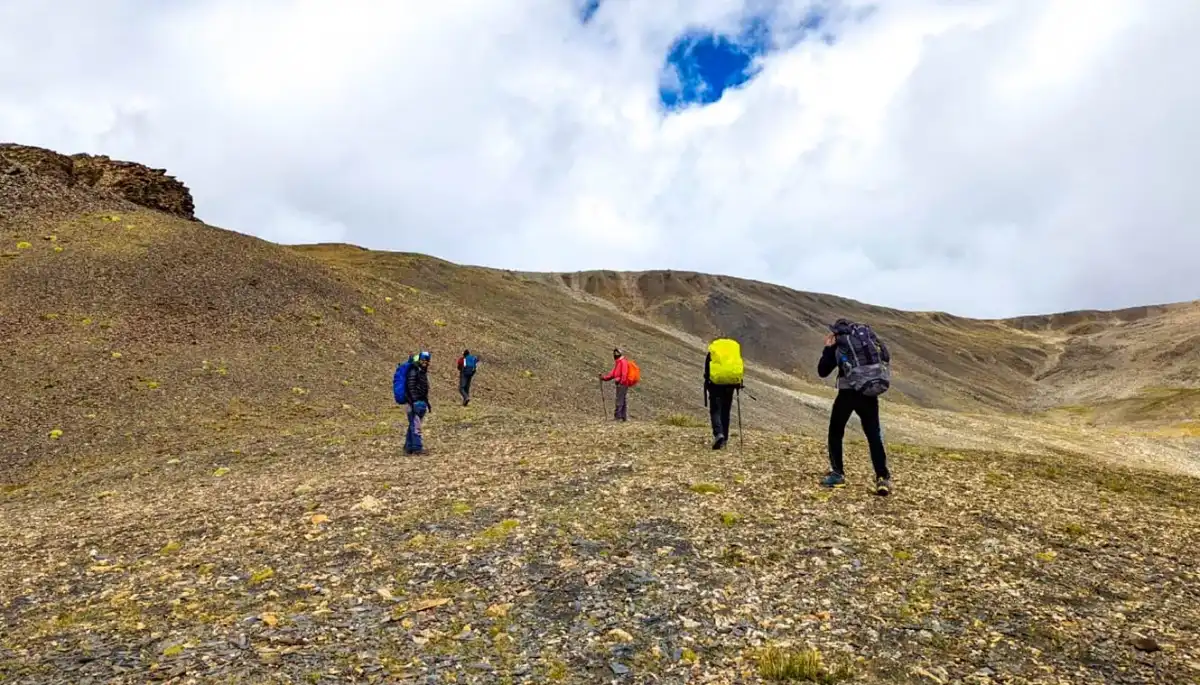
Sara to Markha
- Altitude: Markha- 3,700 m/ 12,200 ft.
- Trek Distance: 10 km | 5-6 hours.
- Accomodation: Tent
Today, start your day with a beautiful morning in the mountains. Have a warm breakfast with a view, then get ready for the trekking day ahead. The trail from the campsite is quite similar to the previous day. After crossing a few small water bodies and trekking through barren land and cold desert, you will arrive at Chalak village. The village comes after crossing a wooden bridge. Here you can see beautiful tea houses, and the village also has houses placed in small hills with stone protection shelters for domestic animals at the base. You can pause here for a short while, engage in conversation with the locals and re-energize yourself. Here in the village you can also see green fields, primarily planted with wheat, surrounded by barren lands and towering mountains. From Chalak, it is a gradual ascent up towards Markha and you will pass by the section of trail marked by Bharal horns.
As you trek towards Markha, at every small distance you can find Mani stones laid around white stupas. These stones are engraved with Buddhist prayers, some of them in Sanskrit language too. Be humble around these historic symbols, also do not touch them as the villagers believe that these stones are protected by some powers, and any harm to them will cause harm to that person. Make sure to take in the ancient ruins that dot the valley, each one echoing with the rich history of the region. These ruins can be identified by flags atop small temples, marking their significance in the landscape.
Here you will have to cross a running stream of Markha river to reach the Markha village. Crossing the river can slightly be tough when the water is thigh-high. It is better to take off your shoes and socks and pull up your pants to cross the river. The cold water will surely bring back your energy and within 20 minutes of more trekking, you will already be able to spot the hamlet of Markha. Markha is the largest village in the entire valley with some beautiful houses scattered around. You can also visit the monastery here and see the ruins of Markha fort. Markha will be the end for today’s trek and we will camp here for the night.
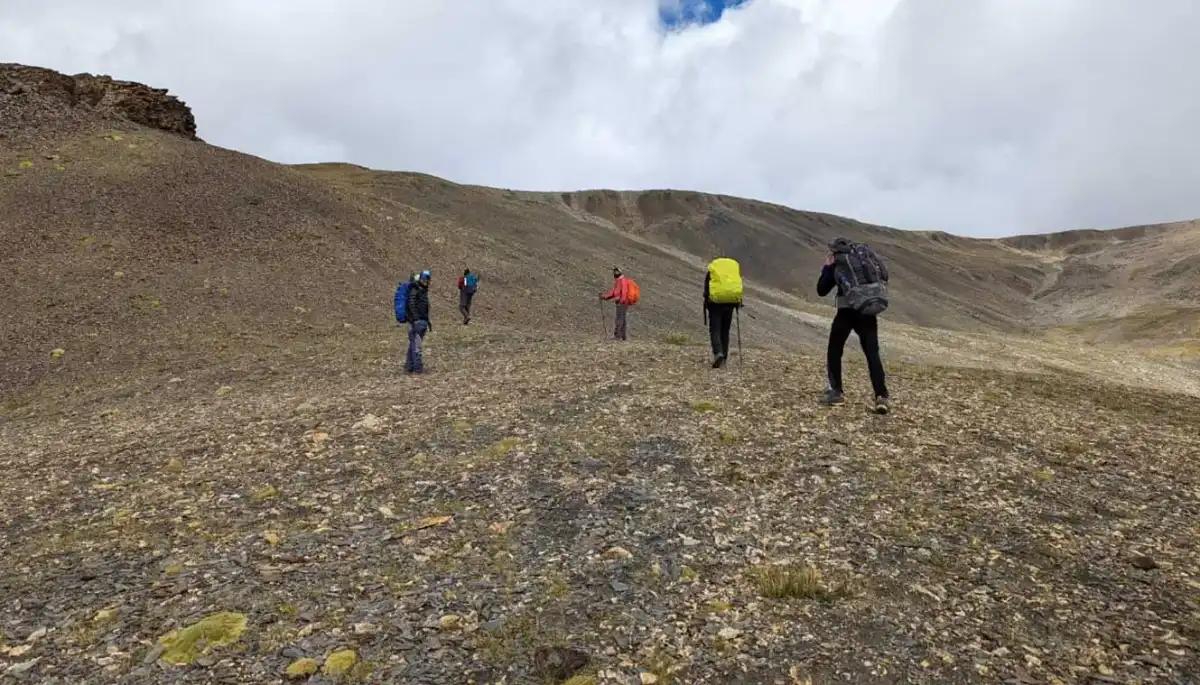
Markha To Hankar
- Altitude: 4,100m/ 13,400 ft.
- Trek Distance: 13 km | 7 - 8 hrs.
- Altitude Gain: 400m/ 1200 ft.
- Teahouse at Umling Village.
- Last Village Of The Valley.
- View Of A Beautiful Monastery.
- The path will intersect the River several times.
- After Umlung, you will have the first look at Mt. Kang Yatse (6,400 m).
- Packed lunch on the way.
- Accommodation in homestay/ camping.
Take the most advantage of the innocence of the salient villages because today will probably be the last habitats on the route. Today is one of the most beautiful days of trekking and the views start opening up as you traverse the upper Markha Valley. The trail is beautiful and refreshing when it merges with flowing rivers and streams. These water bodies can also be crossed over a bridge. Umlung village is a small village and will serve as the last teahouse of the trek with yet another serene monastery to your sight.
After Umlung you can get the first sight of Mt. Kang Yatse(6400m). It seems as if the peak is calling you! Follow its voice, again overcome the river several times and enter the Hankar village. Try to spot the magically placed Tacha monastery on a mountain. It is the last hamlet of the trek and your refuge place.
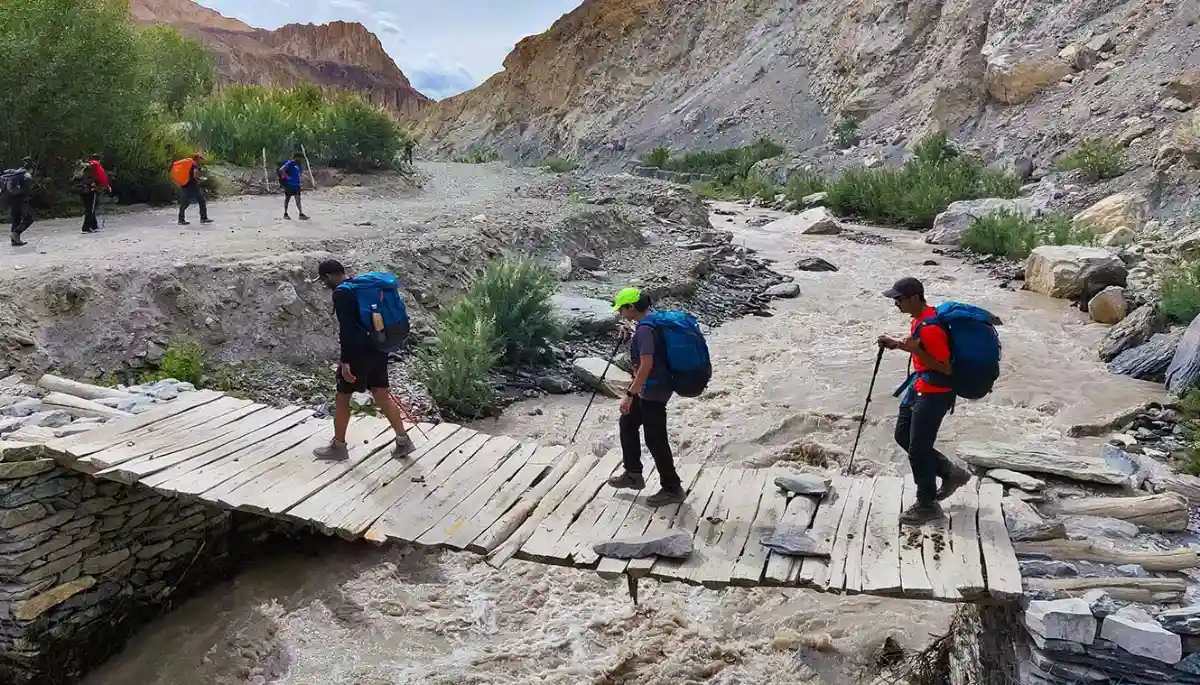
Hankar To Nimaling
- Altitude: 4,800 m/ 15,800 ft.
- Trek Distance: 12 km | 7-8 hrs.
- Altitude Gain: 700 m/ 2,400 ft.
- An easy trek.
- Amazing view of Kang Yatse.
- Amazing view of Tigu Lakes.
- Packed lunch on the way.
- Accommodation in a tent.
Get all enthusiastic, after yesterday’s tough trek, today will be an easy and short trek. Start walking and in 1 km you will find diversions or paths separating out. The other route goes to Rupshu and Zanskar. Keep walking on the left path until a stone bridge. This marks that you are on the right trail. Henceforth, you can see many diversions, please be careful and follow the trek leader/guide. In the next 2 hours, the pastures of Thochuntse become visible. There are camping sites and tea houses here. Thochnugtse also has some lovely green fields which are quite a contrast to the aridness of the desert in Ladakh. Keep walking slowly, enjoying the view. The trail is quite steep for like an hour after which becomes a gradual incline.
Try to engulf yourself in nature and move slowly just as you focus on the Kang Yatse peak. The peak seems to grow bigger and bigger. Surprisingly, tranquil twin lakes also come along the path. From the lakes, it is a long and gradual descent to the plateau of Nimaling. The trails enter into a huge grassland after a few fights crossing streams of high altitudes. Sheep, mountain goats, and sometimes rabbits are found grazing at Nimaling. It is a pleasant camping place. It is the highest point you will attain on this trek and being the highest campsite Nimalaing offers spectacular views of the Kang Yatse Peak on the right. There are instances of snowfall at this site hence we prepared for that. Above all that, just try to merge into the high world and sleep in peace.
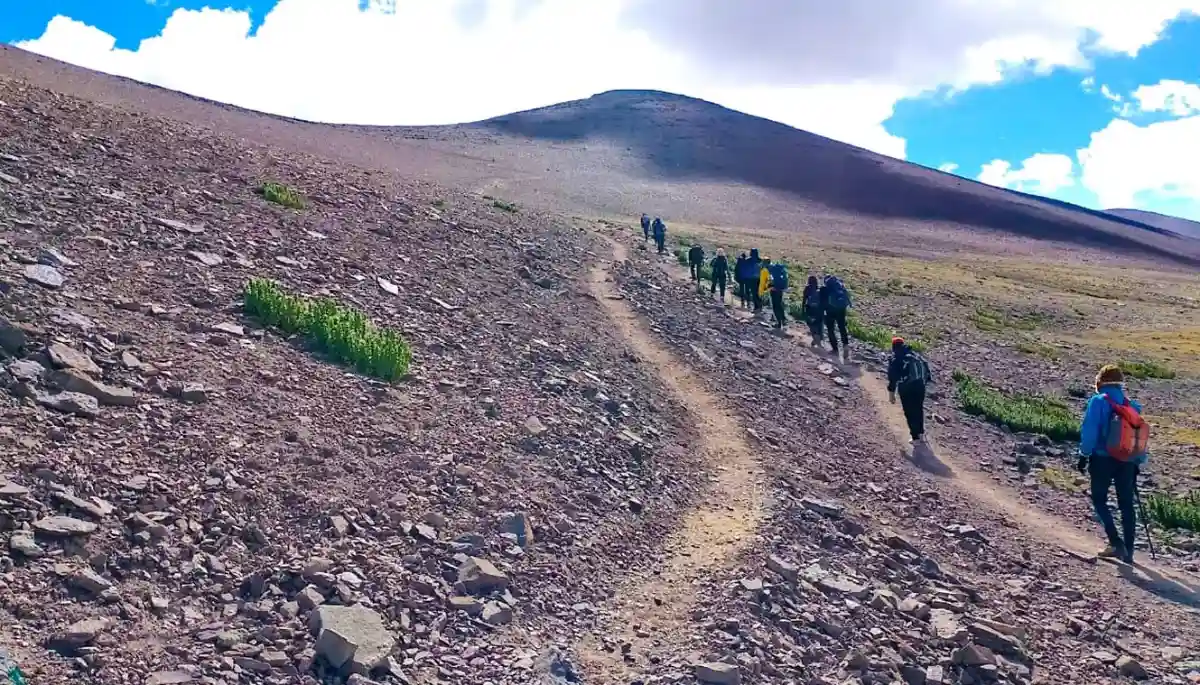
Nimaling to Dzo Jongo East Base Camp
- Altitude: Dzo Jongo East Base Camp - 5,200 m/ 17,100 ft.
- Trek Distance: 4-5 km | 4-5 hrs.
This will be the smallest trekking day of the entire trek. Hence, chill and try to make the most of the beauty around you. The trek starts from the open grounds of Nimalng and follows an uphill climb to the top of the ridge. The first half of the trek has loose rocks but the stunning views of Dzo Jongo East will ease the pain. This is where you get to see the views of Dzo Jongo East in its full glory. The latter half of the trail descends. It takes about 4-5 hrs for you to arrive at the base camp at 5,200 meters.
Make sure to remain out of the tent to get acclimatized. Try to not strain your body and relax at the campsite. You can take short acclimatization walks around the campsite in the evening. This is the best time to study the mountains around you, try to capture as much as you can.
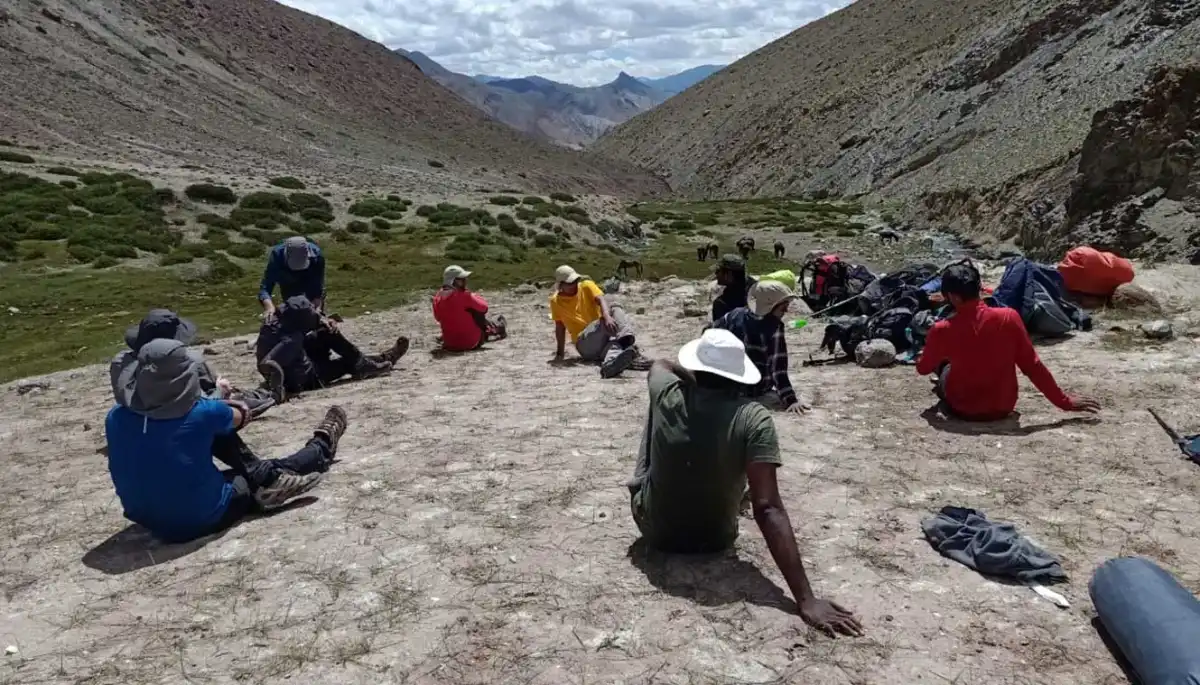
Rest day + Training day (Summit night)
- The TTH team will issue you the technical equipments.
- Learn how to use technical equipments.
- Briefing and planning for the summit.
- Don’t exhaust your body, take rest as much as you can.
- Push for the Summit at 10 pm (Timings may get change).
Today we will rest and accumulate our energy for the summit. Our team will issue technical equipment and also demonstrate their uses for the trek. Today you will practice using the technical equipment for the summit trek. After practicing, take enough rest so that you can be ready for the summit at night.
Our team usually pushes for the summit by 10 PM so that we can reach the summit by early morning and enjoy a spectacular sunset. Gear up in the equipment youre received and get ready for the biggest climb so far, the climb to the Dz Jongo Summit.

Summit(Dzo Jongo East) and back to Dzo Jongo East Base camp
The summit climb to the Dzo Jongo peak is going to be long and hectic but once you make it to the summit, you will understand that all the arduous climb was worth it. It is around 7 km each way and thus one of the longest and most challenging climbs, which only gets steeper and steeper as you climb.
The first 20 to 30 minutes of the trek involves only a fairly easy walk on the leveled ground and you arrive at your first rest point. The climb from here becomes steeper and after 40 minutes of climbing, you will arrive at the Advanced Base Camp. The trail becomes even steeper and while the trail is not technical, the snow can make the climb quite difficult.
You will spot crevasses on the way to the summit and move slowly and cautiously as the climb to the summit is very steep. You will reach the summit by 5 to 6 AM. From the summit, you can spot peaks like Kang Yatse I and II as well as the Changthang Valley mountains.
As you go through each rest point the path becomes steeper and steeper until you make it to the summit at an altitude of 6250 meters. The sunrise at such a high altitude is almost a surreal experience and one of the biggest defining moments of the trek. After enjoying the spellbinding views from the summit, we will head towards the base camp once again and reach the camp by noon. Have lunch at the campsite and rest for the remaining day at the base camp.
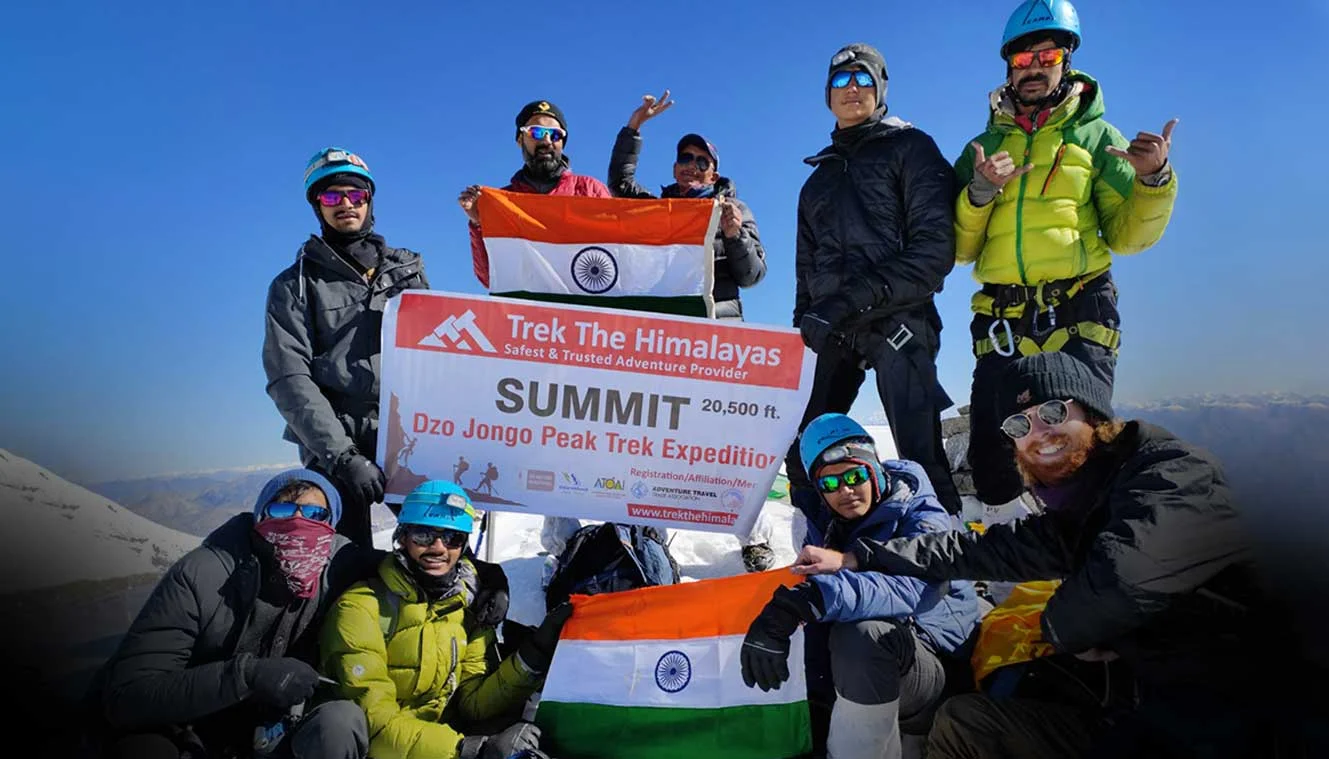
Dzo Jingo East Base Camp to Chokdo via Kongmaru La & drive to Leh
- Altitude: Kongmaru La: 5200 m/ 17300 ft | Chokdo: 3900 m/ 12900 ft.
- Trek Distance: 16 km | 6 - 7 hrs.
- Drive Distance: 60 km.
- The highest altitude pass crossing makes it a difficult day.
- Takes 3 - 4 hrs for Kongmaru La Pass.
- A steep descent and rocky terrain offer amazing views of the Indus Valley and Ladakh Range.
- Stay in the hotel.
Our return journey starts today as we descend from Dzo Jongo Base Camp to Chokdo and cross even another high pass, the Kongmaru La. The Kongmaru La Pass is located at an altitude of 5200 m and crossing the pass makes today’s trek a little difficult. From the Pass, you can enjoy stunning views of the Ladakh Range as well as the Indus Valley. The views of Indus Valley are quite different and you will spot reddish copper and basalt trails leading up the mountains. This is quite a different view as compared to earlier.
The descent from the Kongmaru La Pass is quite steep and it may require roping to descend safely. Further climbing down a rocky terrain will bring you to Chokdo and from here you will drive back to Leh which is approximately a distance of 60 km.
Day 11: Buffer Day
Sometimes it may require more than 9 days to make it to the summit due to unforeseen conditions. We recommend you keep a buffer day in your travel plan. In case of unfavorable conditions, we will wait at the base camp for an extra day and attempt to make the summit once again. However, using a buffer day is a team decision. Also, note that the cost of the buffer day is not included in the package. 30000 INR per day per group is to be paid for buffer day. If the buffer day is not used it can be used for sightseeing and taking part in adventure activities like Rafting in Zanskar, Zip Line, Mountain Biking, Motorcycle tours, etc.
After all the exciting adventures it's time to go back home with lots of memories and your heart filled with satisfaction.
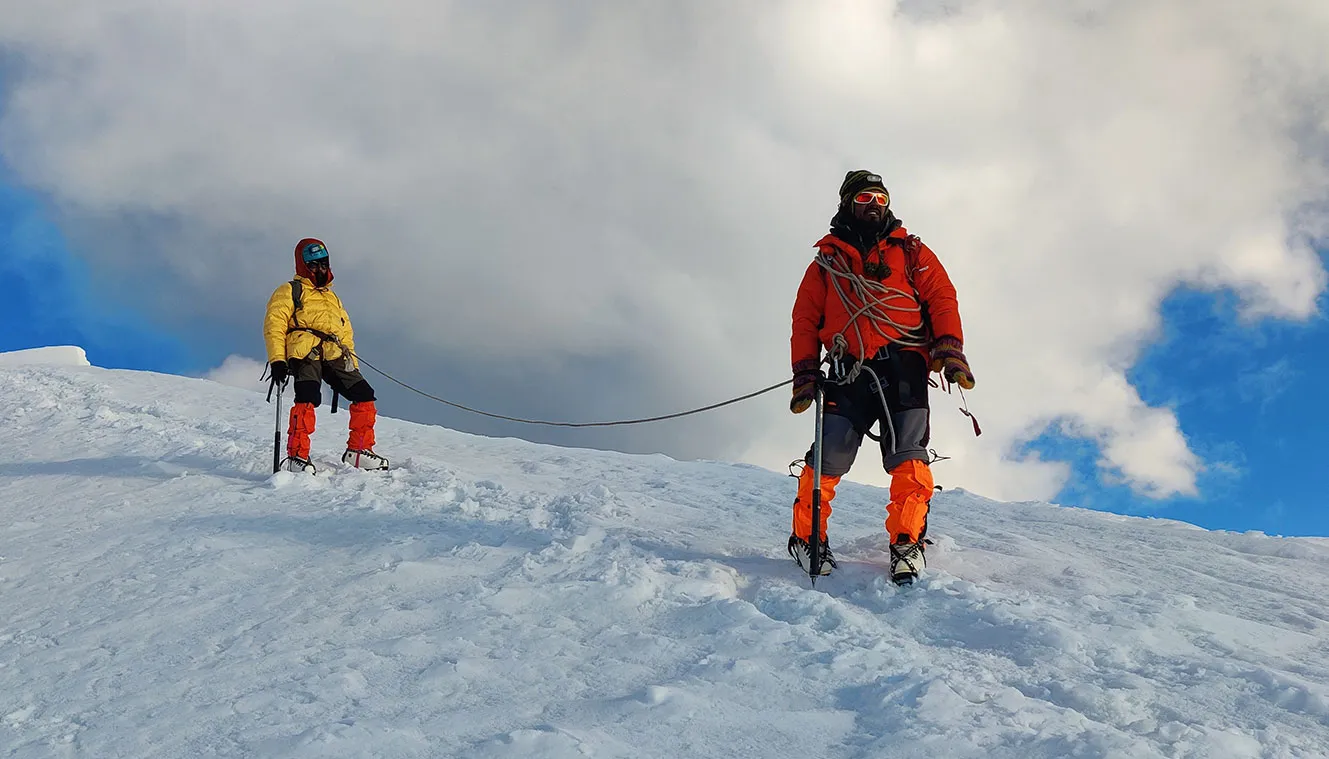
Day-1: Arrival Leh
- Altitude: 3500 m/ 11500 ft.
Note:
- The Dzo Jongo Peak expedition is 10 days and touches an altitude of 20,500ft. If you are looking for an adventure in Leh with less altitude but & exciting challenges you can try the Markha Valley Trek. You can even try our Ladakh Multi Sports Adventure with your friends and family.
Day-2: Leh (Acclimatization day)
- Sightseeing and acclimatization.
- Prominent monasteries: Shey, Thiksey, Sangam, and Hemis.
- Visiting high-altitude places or passes are not advisable.
- Avoid river rafting, you can plan it after the trek.
Note: Downhill cycling tour around Leh without straining body.
Day-3: Drive Leh to Skiu then trek to Sara
- Altitude:
- Skiu- 3,400 m/ 11,150 ft.
- Sara- 3600 m/11800 ft.
- Drive Distance: 70 km | 2-3 hrs.
- Trek Distance: 11 km | 5-6 hrs.
Day-4: Sara to Markha
- Altitude: Markha- 3,700 m/ 12,200 ft.
- Trek Distance: 10 km | 5-6 hours
Day-5: Markha To Hankar
- Altitude: 4,100m/ 13,400 ft.
- Trek Distance: 13 km | 7-8 hrs.
Day-6: Hankar To Nimaling
- Altitude: 4,800 m/ 15,800 ft.
- Trek Distance: 12 km | 7-8 hrs.
Day-7: Nimaling to Dzo Jongo East Base Camp
- Altitude: Dzo Jongo East Base Camp - 5,200 m/ 17,100 ft.
- Trek Distance: 4-5 km | 4-5 hrs.
Day-8: Rest day + Training day (Summit night)
- Don’t exhaust your body, take rest as much as you can.
- Push for the Summit at 10 pm (Timings may get change).
Day-9: Summit(Dzo Jongo East) and back to Dzo Jongo East Base camp
- Altitude: 6,250 m/ 20,500 ft.
- Trek Distance: 14km (both way) | 11-12 hrs.
Day-10: Dzo Jingo East Base Camp to Chokdo via Kongmaru La & drive to Leh
- Altitude: Kongmaru- 5,200 m/ 17,300 ft, Chokdo-3,900 m/ 12,900 ft.
- Trek Distance: 16 km | 8 hrs.
- Drive Distance: 60km | 2-3 hrs.
Day 11: Buffer Day
- Buffer day will be used if unable to summit due to of any unforeseen circumstances.
- Opting for a buffer day will be a team decision, not an individual.
- Keep a buffer day in your travel plan.
- Buffer day is not included in the cost.
- Buffer Day Cost entire group per day (Rs 50,000 per day).
- Please make any further travel plans on Day 11.
- If buffer day is not used in the Expedition then it can be used to explore Leh.
- Rafting in Zanskar
- Mountain Biking
- Motorcycle Tour
- Khardung La visit
- One-day trip to Pangong Lake
- full day sightseeing
- Zipline
Dzo Jongo East Peak With Markha Valley Trek Graph
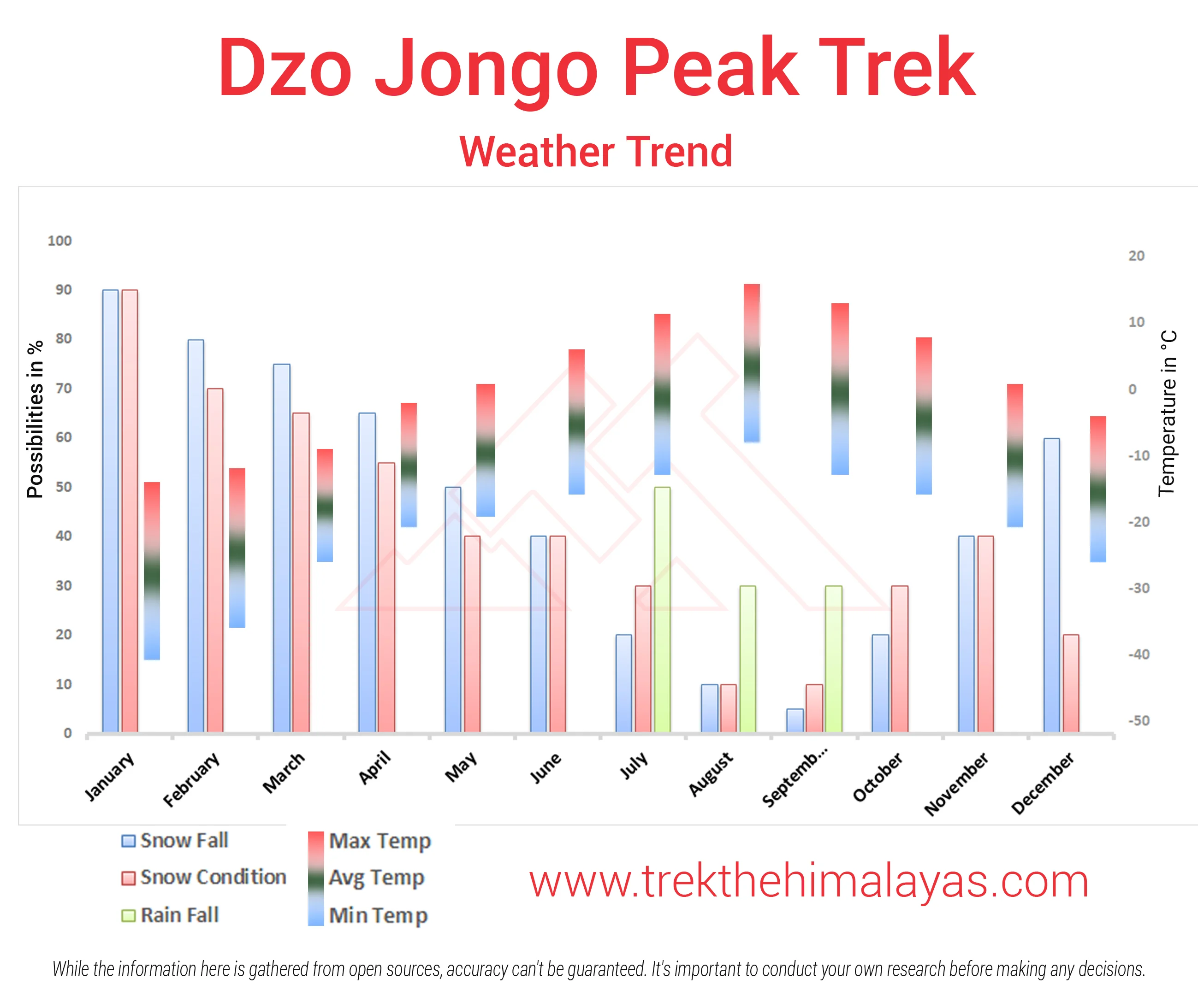
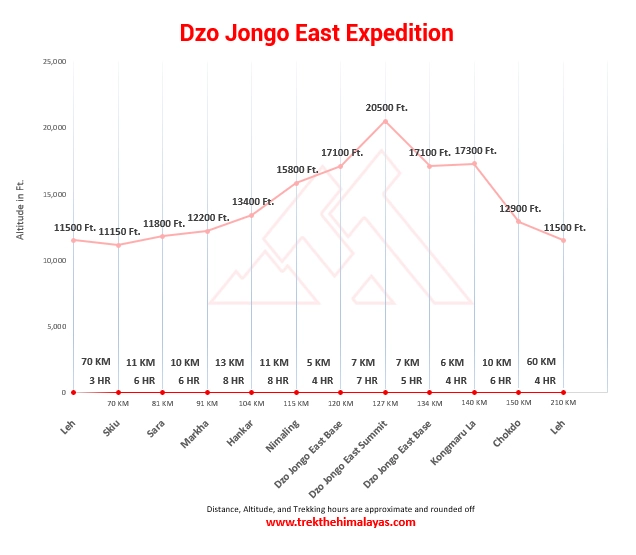
.webp)
- Pulse rate at rest must be in between (60 to 100 beats per minute).
- Blood Pressure Reading must be in between (DIASTOLIC 75 – 85, SYSTOLIC 100 - 130 mm Hg).
- Respiratory rate at rest must be in between (12 to 20 breaths per minute).
- Should not have Liver and kidney issues.
- Should not have Diabetes Mellitus, Bronchial Asthma, Heart problems, Hypertension, etc.
- No pacemaker implant.
- People with Sinus issues, Epilepsy please contact to trek coordinator before booking the trek.
- If your BMI is not normal, Please contact our Trek coordinator before Trek booking.
Medical & Disclaimer Form (Mandatory Documents) Click here to download Medical & Disclaimer Form
Government employees can avail the benefit of Special Casual Leave (SCL) when they join us for a trekking expedition. As per Pay Commission guidelines, up to 30 days of Special Casual Leave can be availed in a calendar year for trekking or mountaineering expeditions conducted through a registered organisation.
Trek The Himalayas is a registered adventure tour operator with the Indian Mountaineering Foundation (IMF) and the Ministry of Tourism (MoT), making your trek eligible for SCL benefits.
To apply, email us at info@trekthehimalayas at least 20 days before the trek departure date, with the following details:
- Trek name and trek date
- Booking details
- Full name
- Designation
- Department and department address
This benefit is exclusive to Indian Government employees and is applicable only for treks within India.
- Trekkers between 15 to 18 years can come solo with the disclaimer form signed by parent/guardian.
- Medical & Disclaimer Form (Mandatory Documents) Click here to download Medical & Disclaimer Form
Since the inception of Trek The Himalayas, countless trekkers have chosen us to be a part of their trekking journey. Some experiences were learning moments, while many of you returned time and again, allowing us to be part of your most unforgettable adventures. Over the years, we have continuously evolved, improving our operations, and every detail that shapes your experience.
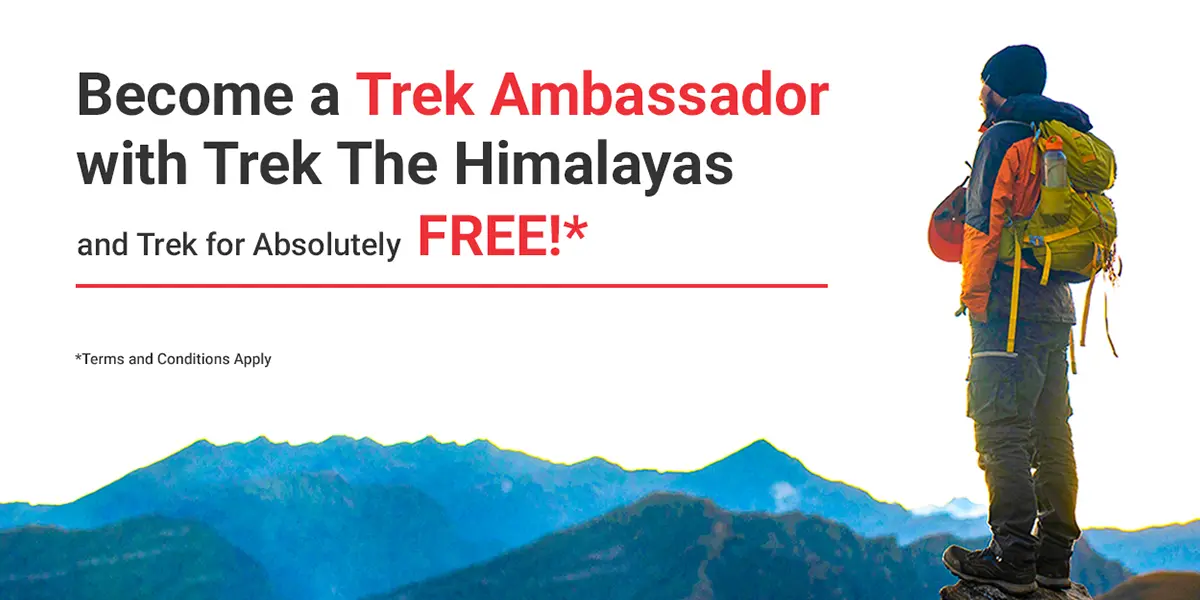
Through it all, you have shown us that we are not just another trekking company to you, we are family. Your trust, loyalty, and love mean more to us than words can express, and we cherish every step we have taken together in the mountains.
As a small way of giving back and saying thank you for choosing us again and again, we are excited to introduce something special: our heartfelt expression of gratitude to our valued and loyal trekkers.
We are launching two amazing policies to make your trekking journey even more exciting.
YES! Not one, but TWO unbelievable policies
Policy 1 : TTH Trek Ambassador Policy
In the TTH Trek Ambassador Policy, anyone who has completed four treks with us gets the fifth trek absolutely free. You can choose from a variety of treks that we offer in himalayan states of India including Ladakh, Uttarakhand, Himachal Pradesh, Sikkim and West Bengal. You just need to start creating your trek bucket list and we are here to help you accomplish it.
Thinking, “I have already done more than 6 treks with TTH, what about me?” In this case you automatically qualify for the policy and therefore, your next trek will be on us. In fact, for every 8 treks you complete, 2 treks are on us.
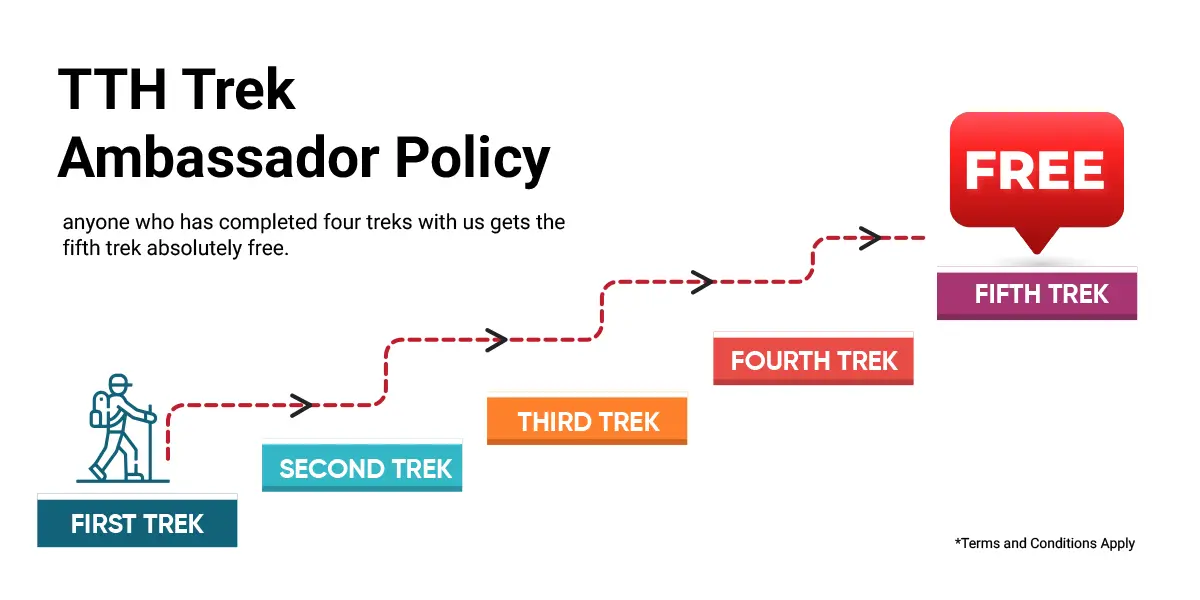
As Unbelievable as it Sounds, Your 5th Trek is Sponsored by Us - Choose any Trek You Love
Love the Chadar Trek? It could be free!
Your dream treks including Markha Valley, Bali Pass, Pin Bhaba Pass, or Lasermo La Trek (launching soon) can be yours at no cost under this policy.
Just like five stars make a perfect set, you are that fifth star for TTH. But this star does more than shine; it guides and inspires. You will share your tips, your stories, your experiences, and help new trekkers enjoy the journey as much as you do. That’s why this trek is special, and it’s your chance to be a TTH Trek Ambassador on the trail.
Being an avid trekker comes with excellent trekking knowledge and experience, and we would love you to share that and guide fellow trekkers along the way.
You will be introduced as our TTH Trek Ambassador to your fellow trekkers. Your experiences will glorify the shine of treks! And we can't wait, just to see how you make the journey just as beautiful as the Himalayan trails themselves!
What About Those Who are Just Getting Started?
Those who are just starting their trekking journey are also eligible for this policy, they just need to complete any four treks/expeditions with us (weekend treks, panch kedar excursion, and multi-sport adventures count too) and they will get the chance to become a TTH Trek Ambassador with their fifth trek absolutely free of cost.
Policy 2: Loyal Customer Policy
After you become a TTH Trek Ambassador with Trek The Himalayas, you will unlock our Loyal Customer Policy, a perk that keeps giving every time you share the joy of trekking.
Once you complete all four treks with TTH, you receive a unique referral code that you can share with your friends and family.
When someone books a trek using your code, you will receive trek points based on the difficulty level of the trek and the referred trekker will receive the same amount of discount while booking the trek. Here is the breakdown of the trek points and discount you and your friend will get.
- If the referred trek is an Easy trek, both of you will receive ₹500 as trek points and discount.
- For a Moderate or Moderate to Difficult trek, both will receive ₹700 as trek points and discount.
- For a Difficult trek, both will receive ₹1,000 as trek points and discount.
- For a Challenging trek, both will receive ₹1,500 as trek points and discount.
Kindly Note: 1 Trek Point = 1 Rupee
These trek points get added to your loyalty points balance and you can redeem these points while booking for your next trek. The more you refer, the more your balance grows.
For example:
If you collect 15,000 as your trek points, you can use them to book any trek within that value. As your balance grows, the possibilities expand and you could use your points for treks and expeditions of higher value anywhere in India, and abroad. Your loyalty points open the door to all kinds of trekking experiences in India and Internationally.
Another great part of this policy is its flexibility. You won’t believe it, but you can also transfer these loyalty points to anyone you like if you’re unable to use them yourself. You can either share or split them with friends or family.
You can also track your loyalty points balance anytime in your TTH dashboard, and we will also keep you updated through notifications whenever the trek points are added or redeemed.
TTH Trek Ambassador Policy FAQs
- What is this initiative all about?
- What if my upcoming trek is my fifth trek with Trek The Himalayas ?
- Can Chadar Trek be included as a free trek under this policy?
- Are weekend treks included in the count?
- I’ve already completed eight treks with TTH. Does this mean my ninth trek is also included?
- Why should I choose TTH over other organizations?
- If my child has completed four treks with TTH, can their Summer Camp be chosen as the fifth free trek?
- Which treks are eligible as free treks under the TTH Trek Ambassador Policy?
- Can I choose a Challenging grade as my free trek?
- How do I claim this benefit for my fifth trek?
- Do I need to make a payment while booking the fifth trek?
- If the trek is offered by TTH, why do I need to pay the amount upfront?
- Why does TTH follow a pay-and-return process?
- I already have multiple upcoming treks booked. Which one will be counted as my fifth trek?
- What if my four treks were registered using different email IDs?
- Can I choose international treks like Everest Base Camp or Kilimanjaro as my free fifth trek?
- Do repeat treks count toward my free fifth trek?
- Does the free trek cover things like insurance, transport, or extra charges?
- I’ve done some treks with other organizations. Do they count?
This initiative is our way of appreciating trekkers who continue to walk with TTH again and again. When you complete four treks with us, you reach an important milestone in your trekking journey. Your fifth trek is then offered by TTH as a gesture of appreciation. You will step in as a TTH Trek Ambassador, sharing your stories and inspiring others with your experience. Along with this, you also unlock Loyal Customer policy in which you can earn the trek points by sharing the referral code with your friends and family.
If your upcoming trek is your fifth trek with TTH, the trek fee for that trek will be completely waived. To ensure smooth planning, you need to register and make the full payment at the time of booking. Once you successfully complete the trek, TTH will refund the eligible trek fee within a week.
Please note that GST and trek insurance are fixed mandatory charges, so they will not be refunded. Any optional add-ons, like transport, gear rental, offloading, or special meals, are also outside the refund scope.
Yes, it absolutely can. And that’s what makes this policy special. If trekking in Ladakh has been your dream, this could be your moment. Iconic treks like Chadar Trek and Markha Valley Trek are available as options for your free fifth trek.
Of course! A trek is a trek, and all your TTH treks, including weekend or two-day treks count toward your free fifth trek.
Yes, and this is one of the nicest parts of the policy. The free trek benefit works in groups of four treks. After completing four treks, your fifth trek is free. If you have completed eight treks, the benefit comes again, and your ninth and tenth treks will also be free. In short,for every four treks completed with TTH, you earn free treks along the way. The more you trek, the more TTH gives back.
Trek The Himalayas offers a wide range of treks be it easy to moderate treks like Kedarkantha, Har Ki Doon, Ranthan Kharak or moderate to difficult treks like Bali Pass, Pin Bhabha Pass or Chadar. By the time you complete four treks in the Himalayas, you have already grown into an experienced trekker.
Naturally, you would now like to prefer to take a step up and choose a difficult trek as your fifth one. Here is where Trek The Himalayas stands out as it offers a variety of difficult treks. And luckily all of them are qualified as free treks under the TTH Trek Ambassador policy. With TTH, you get a variety of trek options to choose from. You can pick a tougher trail or go for an Easy or Moderate trek; the choice is yours.
Yes definitely, we’re happy to offer this. Young trekkers bring fresh energy and enthusiasm to the trail, which makes the journey even more special. If your child has completed four treks with TTH, they can choose a Summer Camp as their fifth free trek.
You’ll be happy to know that any himalayan trek from easy to difficult level can be chosen as your free trek. The best part is that treks like Chadar Trek, Markha Valley, and many other beautiful himalayan treks are included. You may also choose higher-grade treks such as Bali Pass or Pin Bhaba Pass as part of your free trek.
As a TTH Trek Ambassador, your role goes beyond just trekking. You become a mentor on the trail. Someone who guides and shares real experiences with fellow trekkers. After completing multiple treks with TTH, you bring valuable knowledge and perspective that naturally encourages others and adds energy to the group.
Your stories and practical tips help first-timers and intermediate trekkers feel more comfortable and motivated. This is where your experience shines and lifts the overall trekking spirit of the group.
Challenging and peak summit treks, however, follow a slightly different approach. These treks are designed for highly experienced trekkers and climbers, where every participant is already well-prepared and self-driven. In such settings, there is limited scope for peer mentorship, as the structure and demands of the trek are very specific.
That’s why challenging and peak summit treks are kept outside the free fifth trek option, not because they are out of reach, but because the Trek Ambassador role is best experienced on trails where your guidance, encouragement, and shared journey can add value to others.
To claim your free trek, please send an email to info@trekthehimalayas.com, and our team will take it forward from there.
Yes, you do. You need to pay the full amount at the time of booking, just like any regular trek. Once you successfully complete the trek, we process the return of the eligible trek fee within one week. This process helps us plan treks better and ensures that all participants are fully committed.
Each spot on a trek involves planning, logistics, and local arrangements. If someone cancels at the last moment, it directly affects the team and the opportunity for another trekker. Collecting the payment upfront helps us manage this responsibly. Once you complete the trek, the amount is returned as promised. If you cancel, the standard TTH cancellation policy applies.
To keep your trek planning smooth and fair, we collect the trek fee upfront. Last-minute cancellations can affect team arrangements and local logistics, so this pay-and-refund process keeps everything running smoothly while still giving you this special benefit fairly.
The trek that you actually complete as your fifth eligible trek will be considered under this initiative. Even if you have several treks booked in advance, the benefit applies to the trek that completes your fifth-trek milestone.
All four treks must be registered under a single email ID. This helps us confirm that the same person has completed all four treks with TTH. Please ensure your records are linked to one email ID.
The free fifth trek is only valid for treks within India. International treks, including those in Nepal or other countries, don’t qualify as your free trek. However, any international trek you’ve completed does count toward your total number of treks with TTH.
Each unique trek you complete adds to your total. If you repeat a trek you’ve already done, it won’t be counted toward your free fifth trek.
The free trek includes only the trek fee itself. Any extra costs like trek insurance, transport, gear rentals, offloading, or special meals are not included and will need to be paid separately.
To be eligible for the free fifth trek, we count only treks you’ve completed with TTH. But don’t worry, even if you’ve done weekend treks, pilgrimages, or international treks with us, they all contribute to your count. By the time you’re eligible, you’ve likely completed more than four treks with TTH anyway.
Loyal Customer Policy FAQs
- What is the Loyal Customer Policy?
- When do I become eligible for this policy?
- What is a referral code and how do I get it?
- Is there a limit to how many points I can earn?
- What is the minimum number of trek points I can redeem under this policy?
- Can I use these trek points for international treks?
- Can I transfer my trek points to someone else?
- Where can I check my trek points balance?
- Can I share my referral code with someone who has already trekked with TTH?
- What is the validity of the Loyalty points?
The Loyal Customer Policy is a special perk for TTH Trek Ambassadors. After completing four treks with Trek The Himalayas, you receive a referral code. When someone books a trek using your code, both you and the referred trekker earn trek points and discounts based on the difficulty level of the trek.
You become eligible for the Loyal Customer Policy after completing four treks with Trek The Himalayas and becoming a TTH Trek Ambassador. Make sure all your four treks must be unique.
A referral code is a unique code provided to you once you become a TTH Trek Ambassador. You can share this code with friends and family. When they use it while booking a trek, both of you receive trek points and discounts.
There is no limit to the number of trek points you can earn. The more you refer, the more points get added to your loyalty points balance, which you can redeem while booking your future treks.
There is no minimum limit for redeeming your trek points under this policy. You can start redeeming your rewards with as little as one trek point. Every trek point you earn holds value, giving you complete flexibility to use your points whenever and however you choose without waiting to accumulate a fixed number.
Yes! One of the best parts of the Loyal Customer Policy is that you can use your trek points to book any trek with TTH, including international treks.
This is the flexibility of the policy. You can easily transfer your points to friends and family, and they can use them for their own trek planning with TTH. Even if you want to split the points and use them with your friends, you can do that too and enjoy trekking together!
You can easily track your trek points anytime in your TTH dashboard. Also, we’ll keep you updated with notifications whenever points are added or redeemed, so you always know your balance.
No. Referrals must be for completely new members. Anyone who has already registered or trekked with TTH earlier will not be counted as a valid referral.
The Loyalty Customer accumulated points is valid for two years from the date it is issued.
Important Links
- Mandatory Documents to Bring on A Trek Click Here.
- How to pay Add-ons, Submit Medical Forms, and Dietary Preferences Click Here to watch Video
How To Reach
It is essential for everyone to arrive at Leh (01:00 pm)
Upon booking the trek, your trek coordinator will furnish you with the hotel details.
Choose any option to reach Leh
- The easiest and best way to travel is to fly to Kushok Bakula Rimpochi Airport located in Leh. It is just 4 km away from the main city. The airport is well connected to Delhi and also receives flights from Mumbai, Srinagar, Jammu, Chandigarh, and other general destinations in India. Even international travelers can fly directly from major cities like Kolkata, Mumbai, and Delhi. You can find taxis outside the airport or book a cab to reach the required destination.
- There are two road routes to Leh
- Manali (Himachal Pradesh ) to Leh via Baralacha La, Lachulung La and Tanglang La and It covers a distance of 500 km.
- Srinagar to Leh via Zoji La, Lamayuru Lunar Landscape and Kargil and It covers a distance of 450 km.
- You cannot reach Leh directly by train as there is no train station in Ladakh. The nearest railway station is Jammu Tawi (700 km from Ladakh) which is well connected with Delhi, Kolkata and Mumbai.
For your return journey from Leh, you have the flexibility to choose between road or air transport options. Please note that our services extend only to the hotel, and the standard hotel check-out time is 11:00 am, if you opt for an air transport then please ensure an early check-out in the morning, as all flights operate during the morning hours
It's highly advisable to keep 2 buffer day in your travel plan. If the buffer day is not needed, it can be used to explore Leh.
.webp)
Cost Terms
Inclusion
1. Accommodation (as per the itinerary):
- Guest house in Leh on Day 1, Day 2, and Day 10 as per the itinerary(double sharing/triple sharing).
- Camping during the trek.
2. Meals (Veg + Egg):
- All meals while on trek as per itinerary (Day 3 lunch to Day 10 pack lunch).
3. Support:
- 1 Versatile base camp manager: handles communication and deploys extra manpower in emergencies.
- 1 Mountaineering & First aid qualified professional trek Leader.
- 1:2 Guide/Trekker Ratio on Summit Day
- 1 Experienced high-altitude chef.
- Local experienced guides (Number of guides depending on the group size).
- Enough support staff.
4. Trek equipment:
- Sleeping bag, Sleeping liners (if required), mattresses, and Utensils.
- 3 men all season trekker tent (twin sharing), Kitchen & Dining tent, Toilet tent.
- Camping stool, Walkie talkie.
- Ropes, Helmet, Ice axe, Harness, Gaiters & crampons (if required).
5. First aid:
- Medical kit, Stretcher, Oxygen cylinder, Blood pressure monitor, Oximeter, Stethoscope.
6. Transportation (as per the itinerary):
- Transport from Leh guest house to Skiu and return as per the itinerary.
7. Mules/porters to carry the central luggage.
8. Cloakroom facility available at the base camp for additional luggage.
9. All necessary permits are included, up to the amount charged for Indian nationals.
10. Services from Leh to Leh.
11. Trek completion certificate from TTH.
Exclusion
- Insurance (For non-Indian Nationals, NRI or OCI card holders).
- Food during the transit.
- Any kind of personal expenses.
- Mule or porter to carry personal luggage.
- Emergency evacuation, hospitalization charge, etc.
- Any extra costs incurred due to extension/change of the itinerary due to natural calamities roadblocks, vehicle breakdown, etc. factors beyond our control
- Peak booking fee for Foreigners: Approx. 5000 per person/peak(need to pay in Leh only).
- Peak booking fee for Indians: Approx. Rs. 1000 per person/peak(need to pay in Leh only).
- Environment fee: Environment fee + ILP: Approx Rs. 600 to Rs700 per person. (as per new Guidelines need to pay in Leh only).
- Anything not specifically mentioned under the head Inclusion.
Note:
Summit Bonus
- The Summit Bonus is 5% of the trek fee and is considered part of the tips for the Trek leader, guides, porters, and support staff.
- This amount is mandatory for trekkers who successfully complete the summit.
- Trekkers who do not reach the summit may contribute voluntarily if they wish.
Things can be provided on demand and availability (participant has to pay extra for these things).
1- Satellite phone/set phone - a type of mobile phone that connects via radio links via satellites orbiting the Earth instead of terrestrial cell sites like cell phones. Therefore, they can operate in most geographic locations on the Earth's surface.
Note: Satellite phones are prohibited in Leh-Ladakh, Kashmir, Sikkim due to security concerns related to its proximity to sensitive international borders. Only authorized personnel, like government officials and military, can use them with special permission from the Department of Telecommunications (DoT).
2- Gamow/PAC HAPO Bag (Portable Hyperbaric Bag) - is a unique, portable hyperbaric chamber for the treatment of acute mountain sickness (AMS), also known as altitude sickness.
3- AEDs (Automated External Defibrillators) - are portable life-saving devices designed to treat people experiencing sudden cardiac arrest, a medical condition in which the heart stops beating suddenly and unexpectedly.
Cancellation Terms
To request a cancellation, please email us at info@trekthehimalayas.com using your registered email ID.
Cancellations prior to 25 days from the start of the Trip
Refund Options
- 5% deduction of trek fee
- 100% trek fee cash voucher for any trip till one year
- Transfer your trek (any trek, any date) to your friend
Cancellation between 24 days and 15 days to the start of the Trip
Refund Options
- 30% deduction of trek fee
- 100% trek fee cash voucher for same trip till one year
- 85% trek fee cash voucher for any trip till one year
- Transfer your trek (same trek, any date) to your friend
Cancellation between 14 days and 10 days to the start of the Trip
Refund Options
- 50% deduction of trek fee
- 80% trek fee cash voucher for same trip till one year
- 70% trek fee cash voucher for any trip till one year
- Book the same trek, in the same season, with any other batch
- Transfer your trek (same trek, any date) to your friend
Cancellation less than 9 days to the start of the trek.
Refund Options
- No cash refund
- 20% trek fee cash voucher for the same trip till one year
- 10% trek fee cash voucher for any trip till one year
- Transfer your trek (same trek, same date) to your friend
- To reschedule a trek (same trek only), a 30 % rescheduling fee of the trek cost will apply.
Cancellation Policy (Emergency Cases):
In case of a death in the immediate family (parents, siblings, spouse, children) or if the trekker is hospitalized (min. 48 hours) or suffers a fracture (leg/arm) within a week before the trek, even if canceled a day before:
90% trek fee refund in cash & 10% as a voucher (valid for 1 year, for any India trek).
Valid documents required. We’re here to support you during tough times.
Note:
- Change of trek batch is dependent on the availability of seats in the batch
- In case of transferring a trek to a friend, he/she should satisfy all the mandatory requirements put forward by TTH
- TTH holds the right to change/cancel the policies, without prior notice
Booking and Payments
- The Participant is responsible for verifying the accuracy of all details, including Trip dates and personal documentation, at the time of booking.
- Payments must be made in accordance with the timelines and instructions provided by TTH. Late payments may result in cancellation of booking without refund.
- In the event of a cash refund, only the portion of the payment made in cash shall be eligible for refund in cash. Any booking made using voucher, discounts, promotional codes, or through any non-cash mode of payment shall not be eligible for a cash refund under any circumstances.
- Refunds, if applicable, shall be processed within 15–30 working days of confirmation.
- All add-on bookings are subject to the respective add-on cancellation policy, and refunds will be processed accordingly.
- Voucher Terms
- This is a non-transferable voucher
- The voucher cannot be merged with any other offer of Trek The Himalayas
- The voucher is valid for Trek booked directly with Trek The Himalayas in India
- To avail the voucher please use your register phone number or e-mail id
- All the other Terms of booking a trek with Trek The Himalayas are applicable to the voucher
Itinerary and Modifications
- TTH reserves the right to modify, shorten, or cancel any part of the Trip due to transportation delays, weather, health emergencies, or other unforeseen circumstances including Force Majeure.
Cancellations and Refunds
- No refunds or vouchers, partial or otherwise, shall be provided for voluntary withdrawal, non-utilisation of services, or removal from the Trip.
- If TTH cancels the Trip before arrival at the designated pick-up point due to unforeseen circumstances or Force Majeure, the Participant may choose from:
- An alternate Trip/date.
- A credit voucher valid for one (1) year.
- Transfer to another Trip, with cost differences payable by the Participant.
- If the Trip is abandoned post-arrival at the designated pick-up point, no cash refund or voucher shall be issued. The Trek Again Policy may apply at TTH’s discretion.
- TTH shall not be liable for any associated travel costs such as flights, accommodation, or visa fees.
Force Majeure
- Events beyond its control including but not limited to earthquakes, landslides, strikes, curfews, war, pandemic, government restrictions, heavy rainfall or snowfall, windstorms, road blockages, trail disruption, or withdrawal of permits, TTH shall not be held liable for any cancellation, delay, or service modification caused by Force Majeure.
Trek Essentials
Rent EquipmentPDF Of Trek Essential Download
| Backpack with rain cover | (50 - 60 ltr) with comfortable shoulder straps |
| Day pack with rain cover | 20 - 30 ltr (If off-load opted) |
| Walking stick | Advisable (At least one) |
| Water Bottle / Hydration pack | 2 bottles of one liter each, People who use hydration pack 1 hydration pack and 1 bottle of one liter, Carry at least one thermos flask. |
| Small size tiffin/lunch box | 1 Nos |
| Snacks | Energy bars, dry fruits, electral/ors |
| Personal Medical Kit | Consult your doctor |
| T-Shirt (Synthetic quick dry) | 1 Full & 2 Half sleeves |
| Fleece T-shirt | 1 Nos |
| Fleece jacket | 1 Nos |
| Windproof Jacket | 1 Nos |
| Down feather / Hollow jacket | 1 Nos |
| Thermal inner (Upper and Lower) | 1 Pair |
| Trek Pant (Synthetic quick dry) | 2 Nos |
| Fleece Pant | 1 Nos |
| Waterproof gloves | 1 Pair |
| Fleece / woollen gloves | 1 Pair |
| Poncho / waterproof Jacket and pant | 1 Nos |
| Sunscreen | 1 Nos |
| Moisturiser | 1 Nos |
| Chap-stick / Lip balm | 1 Nos |
| Toothbrush and toothpaste | 1 Nos |
| Toilet paper & Wipes | 1 Nos |
| Soap / hand sanitizers | 1 Nos |
| Antibacterial powder | 1 Nos |
| Quick dry towel | 1 Nos |
| Head torch | 1 Nos. (Avoid Hand torch) |
| Sun Cap | 1 Nos. |
| Woolen cap | 1 Nos. |
| Balaclava | 1 Nos. |
| Buff / Neck-gaiters | 1 Synthetic & 1 Woollen |
| Sunglasses | UV with dark side cover, People who wear spectacles - (A)- Use contact lenses | (B)- Photo chromatic glasses |
| Trekking shoes | 1 Pair (Waterproof, high ankle, good grip) |
| Floaters / flip-flops | 1 Pair |
| Cotton socks | 7 pairs |
| Woollen socks | 2 pairs |
| Gaiters | 1 Pair (TTH provides when required) |
| Micro spikes | 1 Pair (TTH provides when required) |
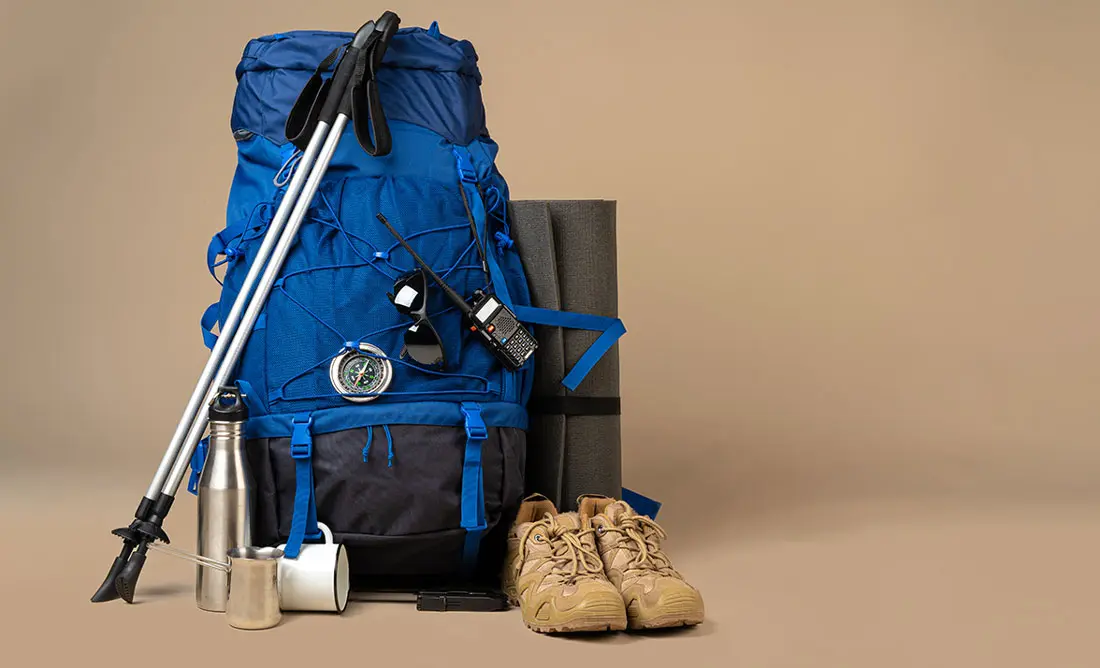
Frequently Asked Questions(FAQ)
To register with TTH, visit our website - www.trekthehimalayas.com and create your account. To create your account you will need to use your email address and fill in all the details, set your unique password and your account is ready to use.
- To book a trek with TTH, you first need to register with us and create an account.
- Choose the trek that you want to do and click on available dates.
- You will land at the login page, fill in the required details.
- Add Participants, choose add-on services click on the Pay now button, choose your preferred payment method, and make the payment. TTH accepts multiple payment options, including credit/debit cards, net banking, and UPI.
- You will receive a confirmation email from TTH with all the necessary details about the trek, including the meeting point, transportation, accommodation, and other important instructions.
- Click Here to watch Video
please send an email to us at info@trekthehimalayas.com or reach out to the numbers provided in the Help and Support section of your Trek Page. We will ensure that your issue is promptly resolved.
To book services such as off-load luggage and transportation, you can find them listed as add-ons. These additional services can be booked at the time of your initial booking. If you miss booking add-ons during the initial reservation, you can log in anytime and easily book 4 days before the departure date add-ons through the platform.
If you have booked the wrong trek or selected the wrong date, don’t worry! You can contact us at +91 9368882322 (Monday to Saturday, 10 AM to 10 PM) or email us at info@trekthehimalayas.com. You can also discuss this with your trek coordinator. Please make sure to inform us at least 10 days before the departure of your trek. Only then can we help you reschedule or arrange another trek for you.
We recommend visiting our "Suggest Me a Trek" page. By filling out the form, our experts will contact you with the best possible trek options based on your preferences and experience level. Alternatively, you can reach out to us via email at info@trekthehimalayas.com or give us a call using the numbers provided on our website for personalized assistance and recommendations.
Family treks differ from regular treks by focusing on ease of difficulty, offering shorter durations for younger participants, Kid-friendly and easily digestible foods, child-friendly activities, maintaining a higher guide ratio for diverse age groups, and implementing additional safety measures for families.
Family Trek with Kids recommendation Only Dayara Bugyal and Chopta Chandrashila Trek.
Minimum age for TTH treks is typically 7 years, though this may vary depending on the specific trek.
Yes, you can take a kids to a high-altitude trek with a parent. Discuss with a trek expert before booking a trek.
- Junior trekkers (below 15 years) should have a company of parents/guardians.
- Trekkers between 15 to 18 years can come solo with the disclaimer form signed by parent/guardian.
- Medical & Disclaimer Form (Mandatory Documents) Click here to download medical and disclaimer form
Physical Fitness: Ensure your child is physically fit. Engage them in regular exercise, outdoor activities, and hikes to build stamina and endurance. Hydration: Emphasize the importance of staying hydrated at high altitudes. Encourage your child to drink water regularly, even if they don't feel thirsty. Proper Nutrition: Provide a well-balanced diet with sufficient carbohydrates for energy and foods rich in iron to prevent altitude sickness. Adequate Sleep: Ensure your child gets enough sleep in the days leading up to the trek. Quality rest is crucial for altitude adaptation. Educate on Altitude Sickness: Teach your child about the symptoms of altitude sickness, such as headache, nausea, and dizziness. Encourage them to communicate any discomfort immediately. Appropriate Clothing and Gear: Dress your child in layers to adjust to changing temperatures. Ensure they have appropriate trekking gear, including sturdy footwear. Positive Mindset: Foster a positive mindset. Encourage your child, and let them know it's okay to take breaks when needed. Medical Check-Up: Schedule a medical check-up before the trek to ensure your child is fit for high-altitude activities. Consult with a healthcare professional about any potential health concerns.
TTH takes special care to provide wholesome and nutritious food for children on treks. Here are some of the foods that are typically served for children:
Breakfast: For breakfast, TTH serves a variety of options like porridge, cornflakes, bread, butter, jam, honey, boiled eggs, omelettes, and pancakes. Children can choose from these options to fuel themselves for the day's trek.
Lunch: For lunch, TTH serves lunch which includes rotis, vegetables, rice, dal, and salad. The rotis are usually made fresh on the trek and are a good source of carbohydrates. The dal and vegetables provide protein and other essential nutrients.
Snacks: TTH provides healthy snacks like fresh fruits, dry fruits, energy bars, cookies, and biscuits to keep the children energized throughout the day.
Dinner: For dinner, TTH serves a hot and wholesome meal which includes soup, rice, dal, vegetables, and a non-vegetarian dish (if requested in advance). Children can also choose from a variety of desserts like custard, jelly, and fruit salad.
Dietary requirements: If a child has any special dietary requirements, TTH can cater to those needs as well. For example, if a child is lactose intolerant or allergic to nuts, the kitchen staff can make arrangements to accommodate those requirements.
Choosing the right trek for a beginner can be a bit overwhelming as there are many factors to consider such as distance, elevation gain, terrain difficulty, weather, and time of year. Here are some tips that can help you choose the right trek for a beginner:
1. Determine fitness level: Assess the fitness level of the beginner to understand their physical capabilities. This will help you select a trek that is challenging but not too difficult.
2. Choose a well-traveled trail: A well-traveled trail will have more amenities such as signposts, water stations, and shelter. It is also safer as there will be other hikers on the trail.
3. Consider the length of the trek: For beginners, it is recommended to start with a shorter trek that can be completed in a day or two. This will help them get acclimatized to trekking and build their confidence.
4. Look for gradual elevation gain: Choose a trek with a gradual elevation gain rather than steep ascents. This will make the trek easier and more enjoyable.
5. Check the weather: Check the weather forecast before selecting a trek. Avoid treks during the monsoon season or winter when the trails can be slippery or dangerous.
6. Research the trail: Read about the trail to get an idea of the terrain, altitude, and difficulty level. This will help you select a trek that is suitable for the beginner.
7. Consult with an expert: If you are unsure about which trek to choose, consult our trek expert Mr. Nitin (+91 70600 59773) between 10 AM to 6 PM (Tuesday - Friday). Mr. Nitin will provide you valuable advice and guidance.
Overall, it is important to choose a trek that is enjoyable, challenging but not too difficult, and suitable for the beginner's fitness level and experience.
It is not recommended for a beginner to choose a difficult Himalayan trek. Trekking in the Himalayas can be physically and mentally challenging, especially if you are not used to the high altitude, steep slopes, and rugged terrain. Choosing a difficult trek without the proper experience, fitness level, and preparation can be dangerous and put you at risk of altitude sickness, injury, and other hazards.
If you are a beginner, it is recommended to start with an easier trek and gradually build up your skills and experience. This will help you understand the challenges of trekking in the Himalayas, and also prepare you physically and mentally for a more difficult trek in the future. It is also important to choose a trek that matches your fitness level, experience, and interest.
There is no specific age limit for a beginner trekker. However, it is important to consider your physical fitness, health condition, and personal interests before embarking on a trek. Trekking in the Himalayas can be physically and mentally demanding, and requires a certain level of physical fitness and endurance.
If you have any pre-existing medical conditions or are above a certain age, it is recommended to consult with a doctor before embarking on a trek. It is also important to listen to your body and take breaks as needed during the trek to prevent exhaustion or injury.
We recommend visiting our "Suggest Me a Trek" page. By filling out the form, our experts will contact you with the best possible trek options based on your preferences and experience level. Alternatively, you can reach out to us via email at info@trekthehimalayas.com or give us a call using the numbers provided on our website for personalized assistance and recommendations.
Yes, you can join the trek. We have fixed departure groups where you can simply book your trek and we will take care of curating a group.
Before you start the trek, it is recommended that you make all the necessary phone calls as during the trek you may or may not receive network coverage, once you come back to the Base Camp, you can reconnect with your family via phone once again. You can share your trek coordinator contact detail with your family members to get the latest updates about your trek batch.
At TTH, we provide wholesome and nutritious meals during the trek. The food is vegetarian and includes a variety of dishes such as rice, dal, vegetables, chapati, paratha, pasta, noodles, and soup. We also offer snacks such as biscuits, and salty, and dry fruits during the trek. Special dietary requirements such as vegan, gluten-free, or Jain food can also be arranged if informed in advance.
If you are allergic to some foods, you need to let us know in advance so that we can make arrangements accordingly.
TTH is a trekking company that prioritizes the safety of all its participants, including women trekkers. We have a comprehensive safety system in place, which includes a dedicated team of experienced and trained trek leaders and support staff who are equipped to handle emergency situations and provide first aid.
TTH also takes specific measures to ensure the safety and comfort of women trekkers. They have a separate tent accommodation for women trekkers, female trek leaders, and support staff. They also provide separate toilet facilities for women and encourage a safe and respectful environment for all trekkers.
Moreover, TTH has a strict policy against any kind of harassment and has a zero-tolerance policy towards such incidents. They have a designated Internal Complaints Committee (ICC) to investigate and address any complaints related to harassment or misconduct. Overall, TTH has a good reputation for safety and responsible trekking practices, and women can feel comfortable and safe while trekking with them.
In case you are the only women in the group, we provide a single sleeping arrangement. Also, during the trek, the trek leader will always remain by your side to provide optimum safety and reassurance.
You can reach out to the trek coordinator to inquire about the number of female trekkers and their respective states who have booked the trek. Please note that the trek coordinator cannot disclose personal details of any trekker. Once you've confirmed your booking, a WhatsApp Group will be created for all the trekkers in your batch. This allows you to connect with fellow trekkers before the trek begins.
While many of our treks are led by female trek leaders, however, it is not possible to know which trek leader is assigned to which group. But nonetheless, whether the trek leader is male or female you can be completely assured of your safety and security with us.
Yes, it is possible to trek with periods. However, it is important to take some extra precautions and preparations to ensure a comfortable and safe trekking experience. Here are some tips that can help you trek during your period:
1. Use menstrual hygiene products that you are comfortable with, such as tampons, pads, or menstrual cups. It is recommended to carry enough supplies for the entire duration of the trek.
2. Pack wet wipes, hand sanitizer, and plastic bags to dispose of used hygiene products.
3. Wear comfortable and breathable clothing that allows for easy movement and reduces friction. Avoid wearing tight or restrictive clothing that can cause discomfort.
4. Carry pain relief medication, such as ibuprofen or acetaminophen, in case of menstrual cramps.
5. Stay hydrated and maintain a balanced diet to support your energy levels and overall health.
6. Take breaks as needed and listen to your body. If you feel uncomfortable or experience any unusual symptoms, seek medical attention immediately. It is also recommended to consult with a doctor before going on a trek during your period, especially if you have a pre-existing medical condition or are taking medication.
By taking necessary precautions and being prepared, you can have a safe and comfortable trekking experience even during your period. We provide proper disposal facilities for sanitary pad disposal during the trek.
We offer three person tents with twin-sharing for optimum comfort. A woman trekker will share a tent with another woman trekker and if you are the only woman in the group, you will be given a single accommodation for your comfort and privacy.
Yes, we do provide gears on rent. You can book it using you TTH account directly.
Mountaineering qualified Experienced and first aid certified Trek Leader, First Aid Certify local guide, Cook, helpers and supporting staff.
People suffering from Bronchitis, Asthma, High blood pressure, Epilepsy (got faints), TB , Heart problem or on higher BMI side are strictly not allowed to go on any Himalayan trek. Apart from this if you had any medical history, please let us know.
No. Alcohol and smoking isn’t allowed while on trek. It is totally misconception that it will keep you warm. Your body need to acclimatize properly and for that eat properly and drink enough water; these things will keep you warm.
Toilet tents provide a convenient solution for answering nature's call in the great outdoors. Dry toilets, in particular, offer a highly sanitary approach. By digging a pit and utilizing mud and a shovel, you can easily cover up your waste. This method ensures cleanliness and hygiene while camping or exploring in the forest.
Remember to pack essential toiletries to complete your outdoor bathroom kit and maintain proper personal hygiene during your adventures. With these practices in place, you can enjoy nature while also respecting it.
Layer Up From Head To Toe
Eat Full Meals, never sleep empty stomach
You can keep warmee (if you’re more susceptible to cold).
Use sleeping bag in right way and don’t leave free space in sleeping bag.
For upper body
– Thermal layer
– T-shirt (full-sleeves)
– Fleece T-shirt (for extreme colds)
– Fleece layer
– Thick Jacket/Down Jacket
– Waterproof or Windproof layer (outermost layer, when it is snowing or raining)
- For Lower Body
– Thermal layer
– Hiking pants (normal) or Winter hiking pants
Based on how warm you feel you can skip any of the above layers. Your outer later should be windproof since it is windy at high altitude.
The idea behind layering is that the more insulation you have the less cold you feel, and instead of wearing a very thick jacket if you wear multiple layers, your body will be better insulated against the cold.
Yes, we provide micro spikes and gaiters, if required.
Mandatory documents: 2 xerox of ID having address (addhar card/driving license), 2 Passport size photographs, hard copy Medical form signed & sealed by doctor, disclaimer form sign by trekker and high altitude insurance.
No. We don’t but we can suggest you good hotel/Stay nearby pick up location.
Yes, trekker must carry 2 water bottles 1 litre each so they can refill it at campsite for drinking and keep themselves hydrate.
You should buy shoes which has these three features –Good grip, Ankle Support and additional water resistant layers. Generally, we advise Quechua Trek 100, MH 500 and MH 100.
No one is forced to go on. There is always enough staff to split the party according to need and regroup later at the camp. Most people have no trouble reaching the highest campsite. If some members decide not to climb the final distance they can wait for the climbers to come back down the same way or take a lateral path to the descent route.
Dzo Jongo East Peak stands at an altitude of 6,250 meters or 20,500 feet. It is considered one of the most accessible six-thousanders in Ladakh. Despite its height, the peak is a popular choice among trekkers who are looking to push their limits without facing overly technical challenges.
The best time to attempt the Dzo Jongo East Peak Trek is during the months of July, August, and September. These months mark the prime trekking season in Ladakh, offering the most favorable and stable weather conditions for high-altitude expeditions. During this period, the skies are generally clear, the temperatures are relatively mild compared to the harsh winters, and the chances of rainfall or snowfall are quite low, making the trails dry and safer for trekking.
This time of year also provides the highest probability of a successful summit, as the weather plays a crucial role in determining the safety and feasibility of reaching the peak. The long daylight hours, lower wind speeds, and good visibility allow trekkers to move at a comfortable pace while fully enjoying the surroundings.
Apart from ideal weather, the natural beauty of Ladakh is at its peak during these months. The landscapes are painted in rich colors, green valleys, blooming wildflowers, and vibrant rivers flowing through barren terrain. This blend of dramatic scenery and pleasant conditions makes the trek not just a physical challenge but a deeply rewarding visual and emotional experience. Attempting the trek outside this window, especially in winter or early spring, can be extremely difficult and dangerous due to snow-covered paths, unpredictable weather, and extreme cold. So, planning your expedition between July and September offers the best balance of adventure, safety, and scenic beauty.
The trek package for Dzo Jongo East Peak is designed to offer a well-planned and comfortable adventure. It includes accommodation at every stop, whether it’s in Leh or during the trek. All meals are covered, along with transport to and from the base location. The package also provides high-quality trekking gear such as tents, sleeping bags, and mats. Medical support is available through a first aid kit and access to basic medical care if needed. You’ll be accompanied by a full support crew, including experienced local guides, a base camp manager for logistics, and a professional trek leader to ensure your safety. The complete setup ensures that trekkers can focus on the experience without worrying about arrangements.
Click here to check Dzo Jongo Peak Expedition price.
The entire Dzo Jongo East Expedition typically takes about 10 days to complete, covering a distance of roughly 81 kilometers. These 10 days include time for trekking, rest, and proper acclimatization to the high altitude. The itinerary is designed thoughtfully so that your body can gradually adjust, helping reduce the risk of altitude sickness while giving you time to enjoy the natural beauty around.
This trek is categorized as difficult, primarily due to its high altitude and long trekking hours. The route includes steep ascents, rocky paths, and sometimes snow-covered sections, especially near the summit. Trekkers should have a good level of physical fitness and stamina. While the trek doesn’t require technical climbing skills, the thin air and cold weather can be challenging. With the right preparation and support from a trained team, this trek is certainly achievable for serious adventure seekers.
The total trekking distance of the Dzo Jongo East Peak Expedition is around 81 kilometers, covered over a span of 10 days. The trail takes you through some of the most beautiful and remote parts of Ladakh, including peaceful villages, mountain passes, and stunning valleys. The journey is so engaging and full of scenic views that you’ll hardly notice how quickly the distance adds up. Each day brings something new, making the entire 81 km feel like a truly rewarding adventure.
The journey to the Dzo Jongo Peak Trek starts from Leh in Ladakh, which is well connected by air to major cities like Delhi, Mumbai, and Srinagar. Once you reach Leh, you’ll spend a day or two acclimatizing to the altitude. From there, a drive will take you to the trailhead, typically starting at a small village like Skiu, located within the Markha Valley region.
The last ATM where you can withdraw cash is in Leh. After leaving Leh and heading into the remote trekking areas, there are no ATM facilities available along the route. It’s highly recommended that you carry enough cash with you from Leh to cover all expenses, including small purchases. Also, mobile and internet connectivity becomes very limited as you go higher, so digital or card payments will not be possible during the trek.
No, there is no electricity or charging facility available during the Dzo Jongo East Peak trek. The entire route is remote, passing through isolated villages and high-altitude terrains where modern infrastructure is minimal or non-existent. Once you leave Leh and begin your journey on the trail, you’ll be completely disconnected from power sources.
It’s highly recommended to carry fully charged power banks and extra batteries for all essential electronics like your phone, camera, GPS devices, or headlamps. Solar chargers can also be a good alternative if you're planning to be on the trail for several days. Additionally, try to keep your devices off when not in use and operate them in low-power mode to conserve battery. Relying on charging options during the trek is not possible, so it’s best to come fully prepared to stay powered on your own.
Yes, first-time trekkers can join the Dzo Jongo East trek, but only if they meet the required fitness levels and are well-prepared. These treks are graded as difficult due to high altitude, long walking hours, and challenging terrain. Even though technical climbing experience is not mandatory, basic trekking experience, especially in high altitudes, can be very helpful.
If you’re a beginner, it’s important to start physical preparation at least a couple of months before the trek. This should include cardio training, leg strengthening exercises, and long walks or hikes to build stamina. Staying healthy and acclimatizing well during the trek is also key to completing it successfully. With proper guidance from experienced trek leaders and good physical preparation, even motivated beginners can take on this adventure.
Dzo Jongo Peak is located in Ladakh, within the Hemis National Park, one of the largest protected areas in India. It lies in the beautiful Markha Valley region, which is famous for its dramatic landscapes, ancient monasteries, peaceful villages, and beautiful wildlife like the blue sheep, and Himalayan marmots.
Accommodation during the Dzo Jongo Peak Expedition is mostly in camping tents. These are typically two- or three-person tents set up at designated campsites each evening. The sleeping bags, mats, and basic camping gear are provided to ensure your comfort and safety in cold conditions. In some sections of the route, especially when passing through small villages like Skiu or Markha, you may get the opportunity to stay in basic guesthouses or homestays. These accommodations offer a simple but warm stay, often with traditional Ladakhi hospitality. However, facilities will be minimal, with limited running water, no heating, and shared toilets. Electricity, if available, will be limited to a few hours or sourced from solar lights.
The experience is raw, immersive, and close to nature, giving you a real feel of mountain life. It’s important to come with an open mindset and be mentally prepared for basic living conditions while enjoying the incredible beauty and peacefulness of the Himalayas.
The Dzo Jongo Peak Trek takes you to a height of 6,250 meters (20,500 feet), where the risk of Acute Mountain Sickness (AMS) is quite real. As you gain altitude quickly, your body needs time to adjust to the low oxygen levels. Common symptoms include headache, nausea, loss of appetite, dizziness, shortness of breath, and trouble sleeping.
That’s why proper acclimatization, moving at a steady pace, staying hydrated, and listening to your body are extremely important. If symptoms get worse, it’s critical to descend immediately to a lower altitude. It’s also a good idea to consult a doctor before your trek, especially if you have any existing health issues or if you’ve experienced altitude sickness on previous treks.
Ladakh offers some of the most stunning and adventurous trekking routes in India. Here are a few of the most popular and recommended ones:
Markha Valley Trek
Kang Yatse II Trek
Kang Yatse I & II Combined Trek
Stok Kangri Trek
Chadar Trek
Each trek has its own beauty, difficulty level, and experience, so choose based on your fitness and goals.
Prior experience in high-altitude trekking is highly recommended for the Dzo Jongo East Peak trek. You’ll be walking for long hours each day, facing steep climbs, cold temperatures, and sometimes rough terrain. It’s important to be comfortable with walking on mountain trails and being outdoors in varying weather conditions. While technical skills are not mandatory, having experience on treks above 4,000 meters will definitely help you perform better and enjoy the trek more confidently.
The summit of Dzo Jongo offers a truly scenic 360-degree view. From the top, you can see the Zanskar Valley, the majestic Karakoram Range, and the beautiful peaks of Kang Yatse I & II. On clear days, you’ll also spot the expansive Changthang Valley stretching out in the distance. Standing at such a high point, surrounded by endless mountain ranges, is a surreal and memorable experience.
The Dzo Jongo East Peak trek, while rewarding, comes with its share of challenges. The most common ones include:
High altitude and the risk of AMS
Thin air and reduced oxygen levels
Extreme weather conditions, especially cold winds and freezing nights
Long trekking hours and steep climbs
Basic living conditions like camping and limited facilities
Some sections may require basic technical skills, which you'll be guided through
Being mentally prepared and physically fit is key to facing these challenges and making the most of the journey.
To prepare for this trek, it’s important to start training at least 4–6 weeks in advance. Focus on cardio activities such as jogging, brisk walking, stair climbing, cycling, and swimming to build endurance. Strength training and breathing exercises (like pranayama) can also help your body adapt to low oxygen environments.
Once in Ladakh, spend a couple of days in Leh to let your body adjust to the altitude. During the trek, there will be a dedicated training day before the summit where your trek leaders will teach you how to use essential equipment like crampons, harnesses, gaiters, and ropes. Even if you’ve never used them before, this practical session will prepare you for the final climb.
The Dzo Jongo East Peak Trek is full of amazing experiences. Some of the main highlights include:
Reaching the summit of a 6,250-meter peak
A thrilling summit climb over rocky and snow-covered terrain
Trekking through remote Himalayan regions with very few people around
Experiencing the rich Ladakhi village culture
Staying in teahouses and homestays in small traditional settlements
Sleeping in tents under starry skies, often with the Milky Way overhead
Yes, the itinerary for the Dzo Jongo East Peak trek includes a dedicated acclimatization and training day, usually before the summit push. This day is crucial for allowing your body to adjust to the thin air at higher altitudes and helps reduce the risk of altitude sickness.
During this time, you’ll not only rest and hydrate but also receive hands-on training on using equipment like ropes, harnesses, crampons, and gaiters, guided by your trek leaders. This day plays a big role in increasing the chances of a successful summit and ensuring that trekkers feel more confident and well-prepared.
The itinerary for the Dzo Jongo Peak trek is as follows:
Day-1: Arrival Leh
Day-2: Leh (Acclimatization day)
Day-3: Drive Leh to Skiu then trek to Sara
Day-4: Sara to Markha
Day-5: Markha To Hankar
Day-6: Hankar To Nimaling
Day-7: Nimaling to Dzo Jongo East Base Camp
Day-8: Rest day + Training day (Summit night)
Day-9: Summit(Dzo Jongo East) and back to Dzo Jongo East Base camp
Day-10: Dzo Jingo East Base Camp to Chokdo via Kongmaru La & drive to Leh
Day 11: Buffer Day
No, the buffer day cannot be skipped, as it is a crucial part of the itinerary. It is kept for your safety and flexibility, especially in the case of unpredictable weather in the high-altitude areas.
The expedition begins in Leh, a high-altitude town in Ladakh known for its stunning landscapes and rich culture. You will spend a day here to properly acclimatize to the altitude, which is crucial for your safety and success on the trek. After acclimatization, you drive from Leh to Skiu, a small village nestled in the Markha Valley. Skiu marks the starting point of the actual trekking route, and from here, your adventure through remote valleys and mountain passes truly begins.
To participate in the Dzo Jongo Peak Expedition, you must be at least 16 years old. This minimum age ensures that participants have the physical strength, mental resilience, and maturity required for a challenging high-altitude trek. While age is one factor, fitness and a strong mindset are equally important to successfully complete this demanding adventure.
Chadar Trek in Ladakh is considered to be the toughest trek in Ladakh.
The safety of the Dzo Jongo Peak Trek Expedition depends on several factors such as weather conditions, altitude sickness, physical fitness, and the level of preparation and planning. The Ladakh region is generally safe for trekking, and the locals are friendly and hospitable. However, it is essential to take necessary precautions to ensure your safety and well-being during the trek.
Acclimatize properly, follow the guidance of the trek leader and the team, stay hydrated, carry the necessary gear and equipment, and dress appropriately for optimum safety.
To undertake the Dzo Jongo Peak Trek Expedition, you need to obtain several permits from the Indian authorities like the Inner Line Permit, Protected Area Permit, and the Wildlife Permit as the trek falls under the restricted area of Ladakh, but when you trek with Trek The Himalayas, we obtain all the necessary permits required for you.
Yes, there is a storeroom facility available in Leh. You can leave your extra luggage or belongings safely at the base before starting your trek. This ensures you only carry what is essential during the expedition.
Yes, mule and porter services are available during the trek. These services help carry your rucksack and other equipment, allowing you to focus more on enjoying the trail and saving your energy for challenging sections like the summit day.
A buffer day is an extra day kept aside apart from the scheduled trekking days. It acts as a safety net in case of delays due to bad weather, health issues, or any other unforeseen circumstances that prevent the summit attempt as planned. This day ensures that your return travel plans remain unaffected even if the schedule shifts slightly.
If the buffer day is not needed during the expedition, it can be used as an additional leisure day in Leh.
Things you can do in Leh if the buffer day is not used:
Go rafting in the Zanskar River – An adrenaline-pumping experience amid deep gorges.
Explore the town on a mountain bike – Ride through Leh's scenic roads and ancient monasteries.
Motorcycle tour – Rent a bike and ride through iconic routes around Leh.
Visit Khardung La – One of the world’s highest motorable roads.
Take a one-day trip to Pangong Lake – A stunning high-altitude lake famous for its changing colors.
Full-day local sightseeing – Visit places like Shanti Stupa, Leh Palace, and local markets.
Try the zipline adventure – For thrill seekers, ziplining across Ladakh’s dramatic landscapes is unforgettable.
The weather during the Dzo Jongo Peak Trek can vary greatly depending on altitude and time of day. In the lower regions, such as Markha Valley, you can expect pleasant days with temperatures ranging from 13°C to 15°C, while early mornings and evenings can dip to around 6°C to 7°C. The skies are generally clear, especially during the recommended trekking months, but winds can occasionally pick up even at lower elevations.
As you gain altitude, especially above 5,000 meters, the temperature drops significantly, and the wind becomes stronger. At higher camps and near the summit, daytime temperatures may hover around 0°C to 5°C, while nights can plummet well below freezing, sometimes reaching -10°C to -15°C. Sudden weather changes are common in the mountains, and trekkers should always be ready for rain, snow, or strong winds even on otherwise sunny days.
Wearing multiple warm layers, along with windproof and waterproof outerwear, is essential. Don’t forget good quality gloves, a warm cap, and thermals to keep you protected from the cold. The key to comfort and safety on this trek is dressing smartly and being prepared for the mountain’s unpredictability.
.webp)
.webp)
.webp)
.webp)
.webp)
.webp)
.webp)
.webp)
.webp)
.webp)
